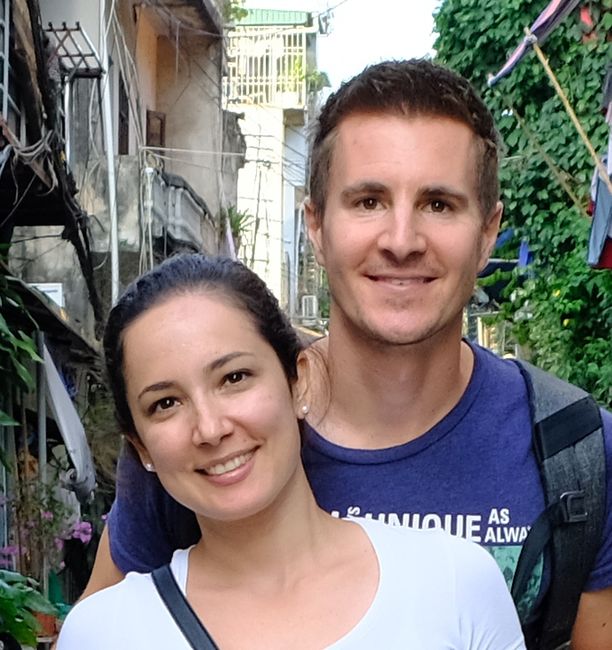
You-Me and Marco Polo
vakantio.de/you-me-and-marco-polo
Japan
Ku kandziyisiwile: 16.11.2023
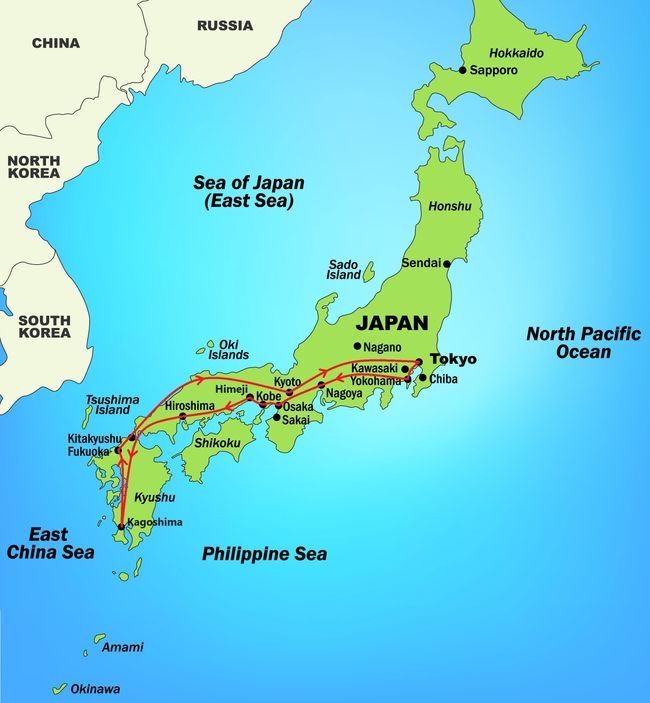
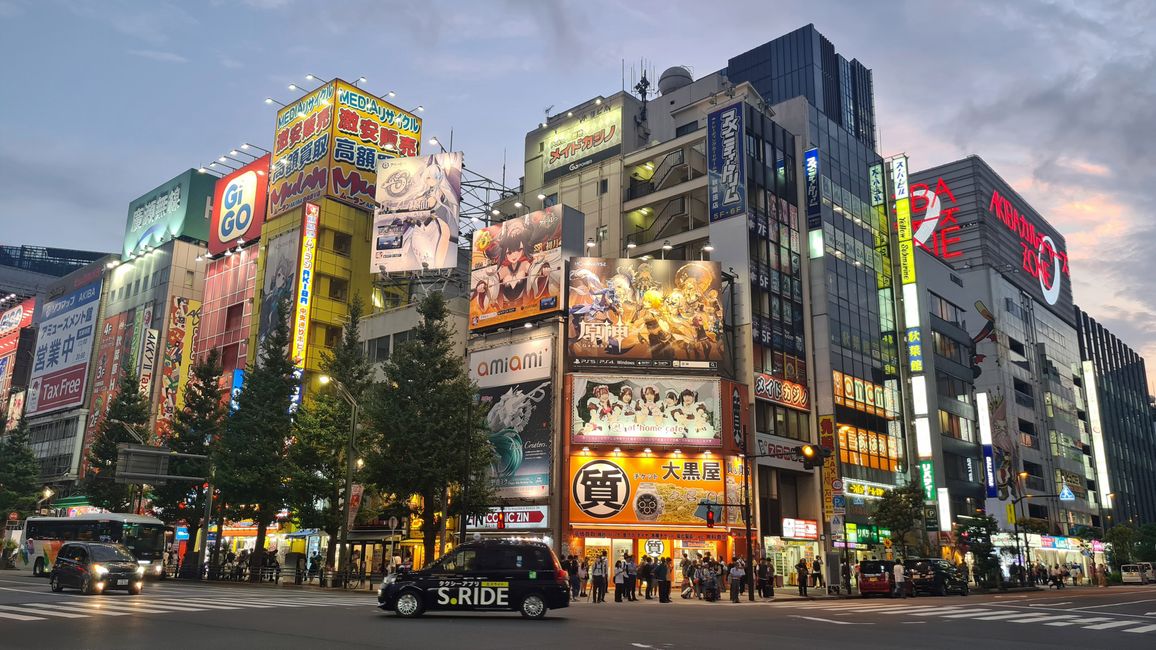
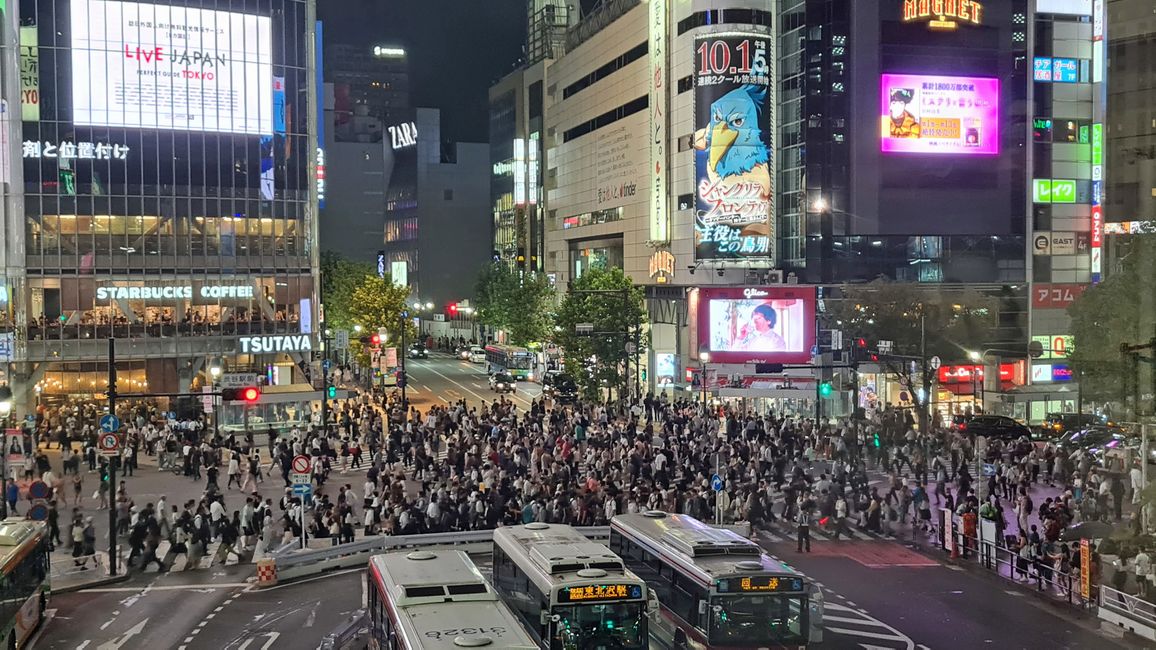
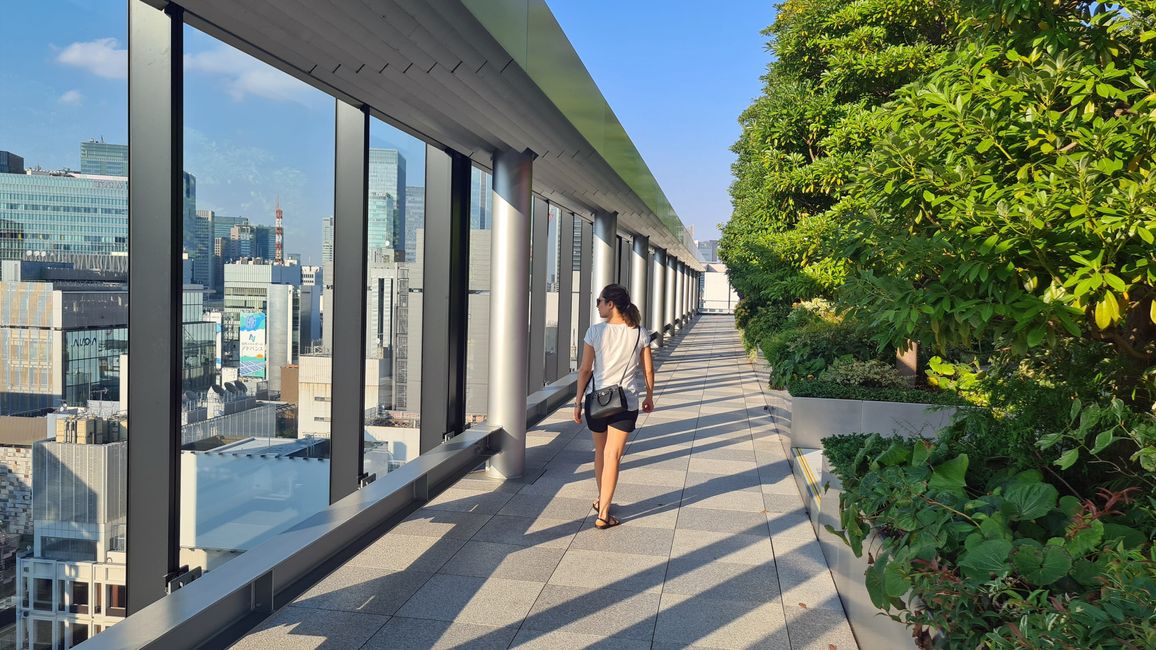
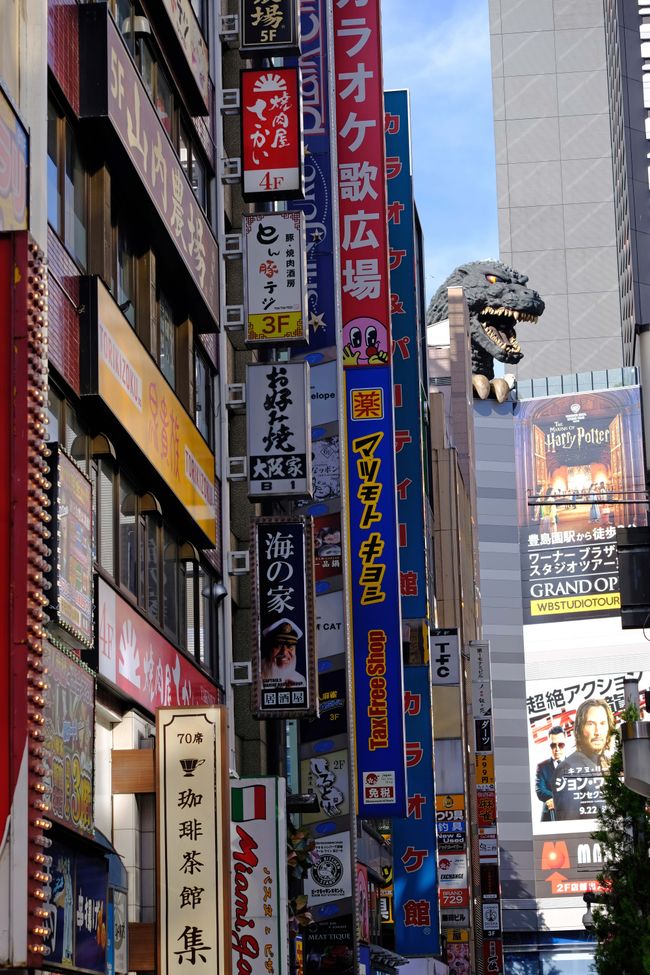
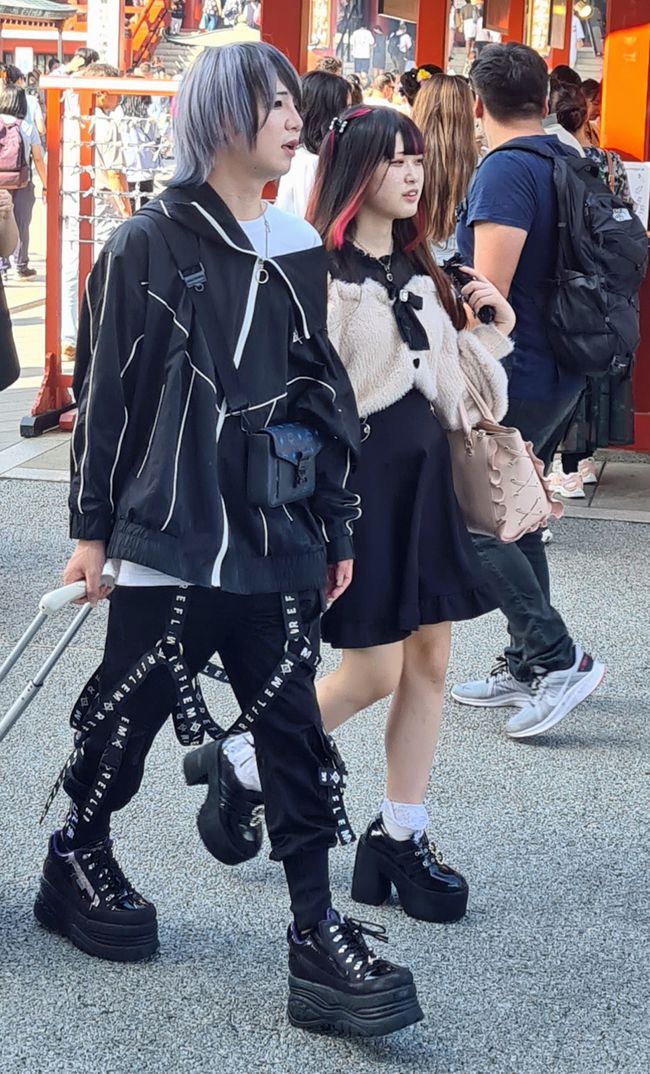
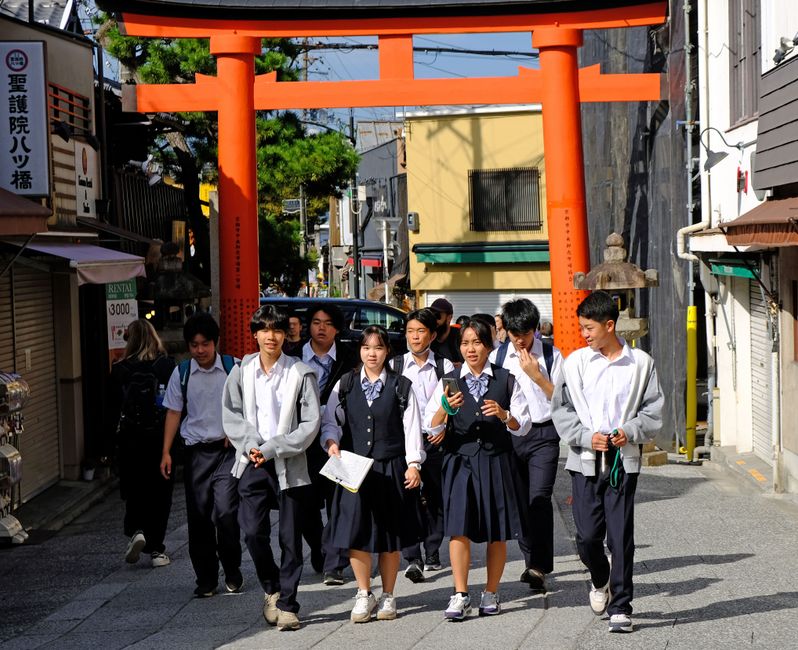
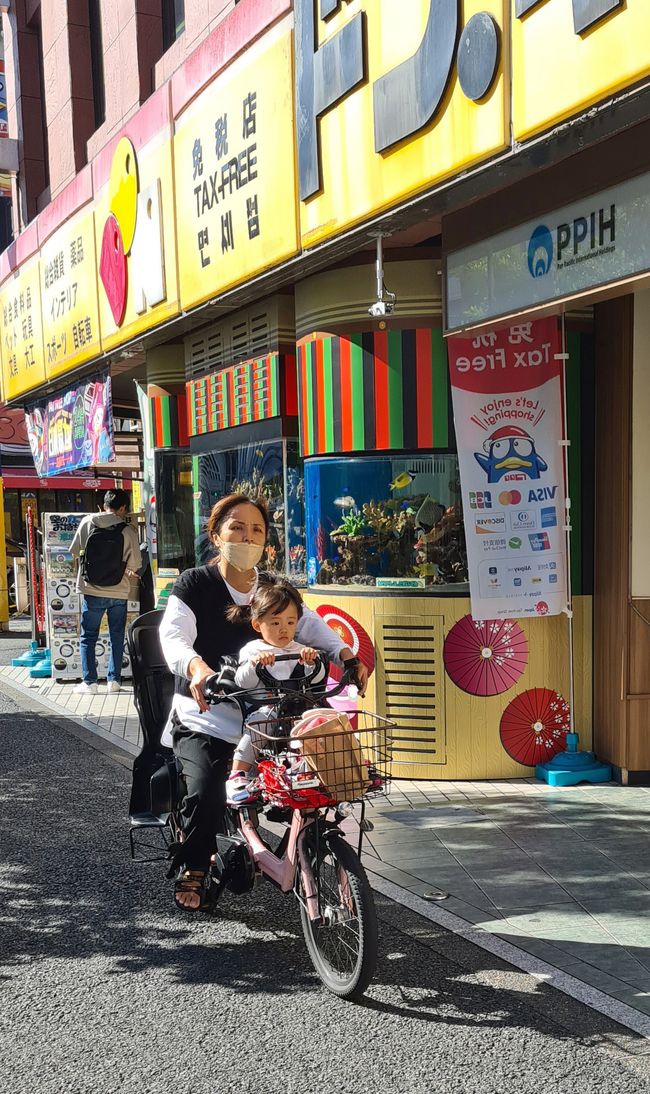
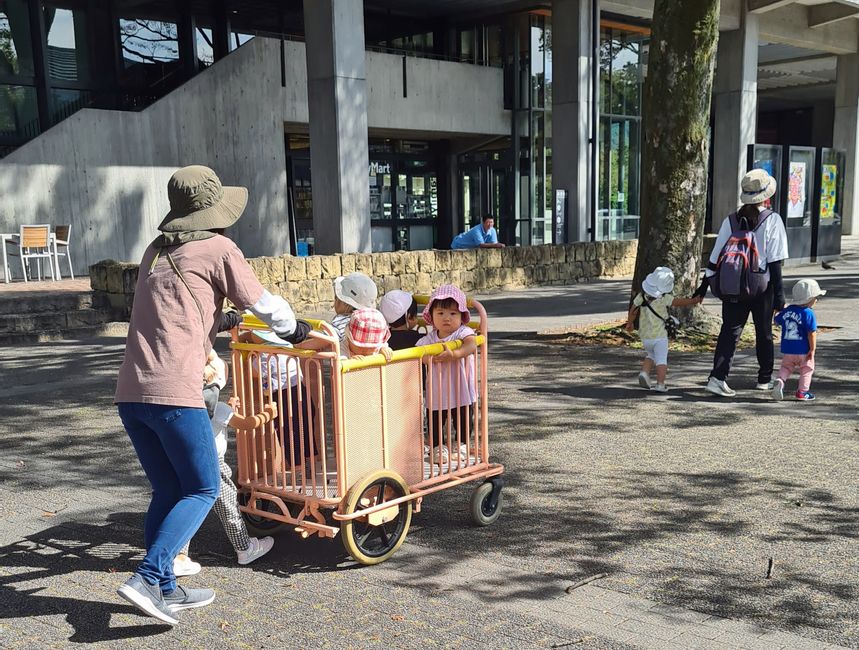
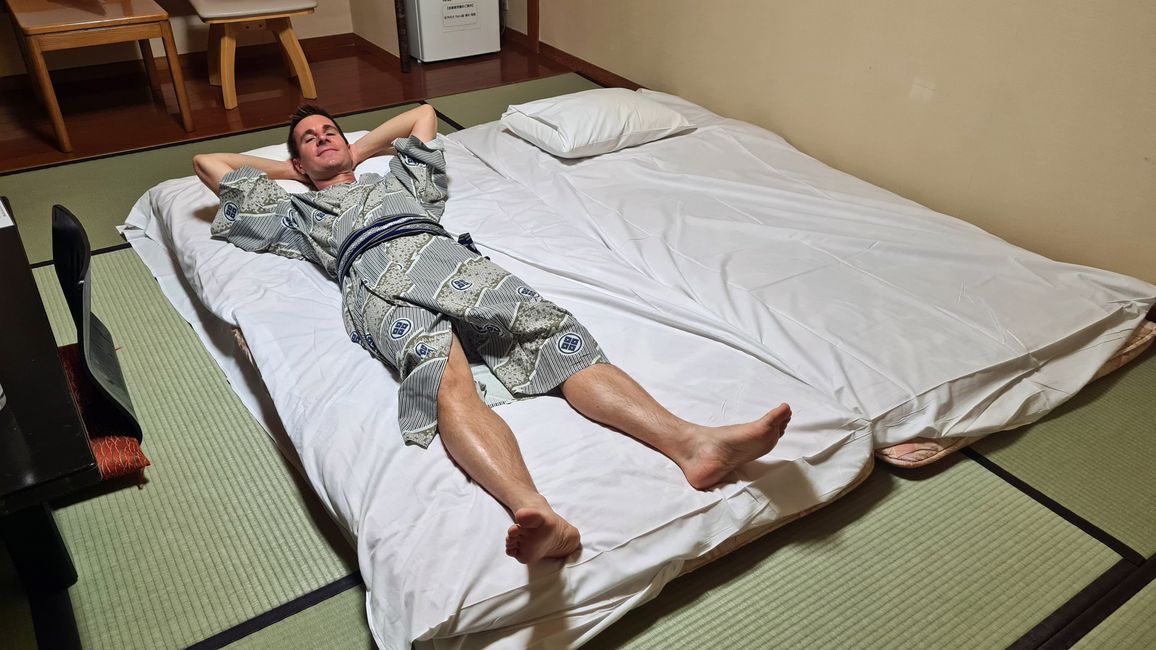
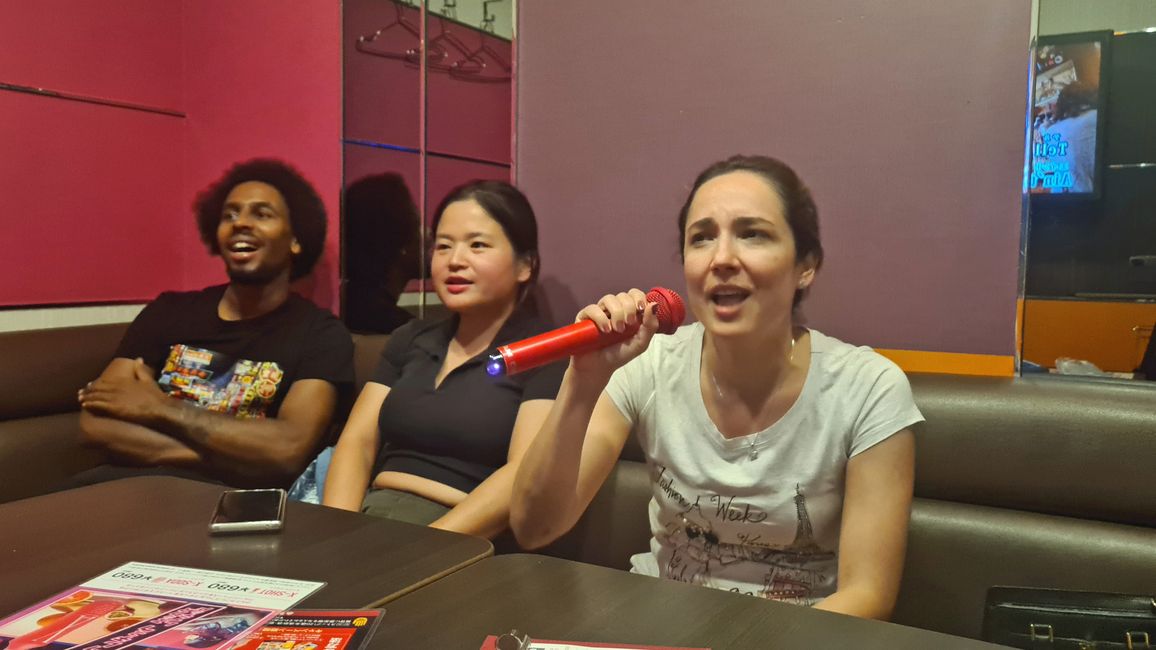
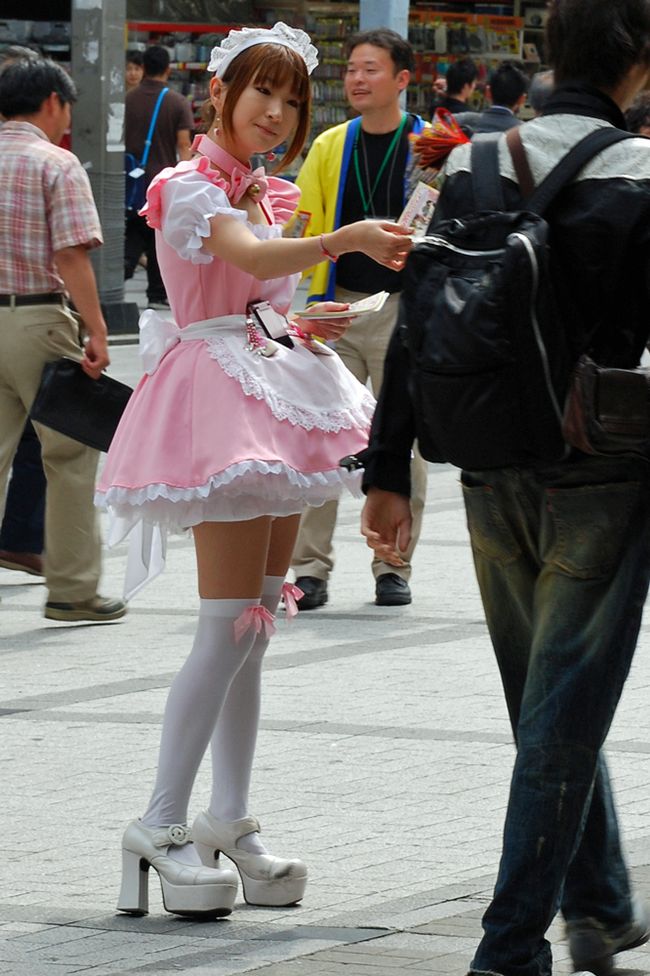
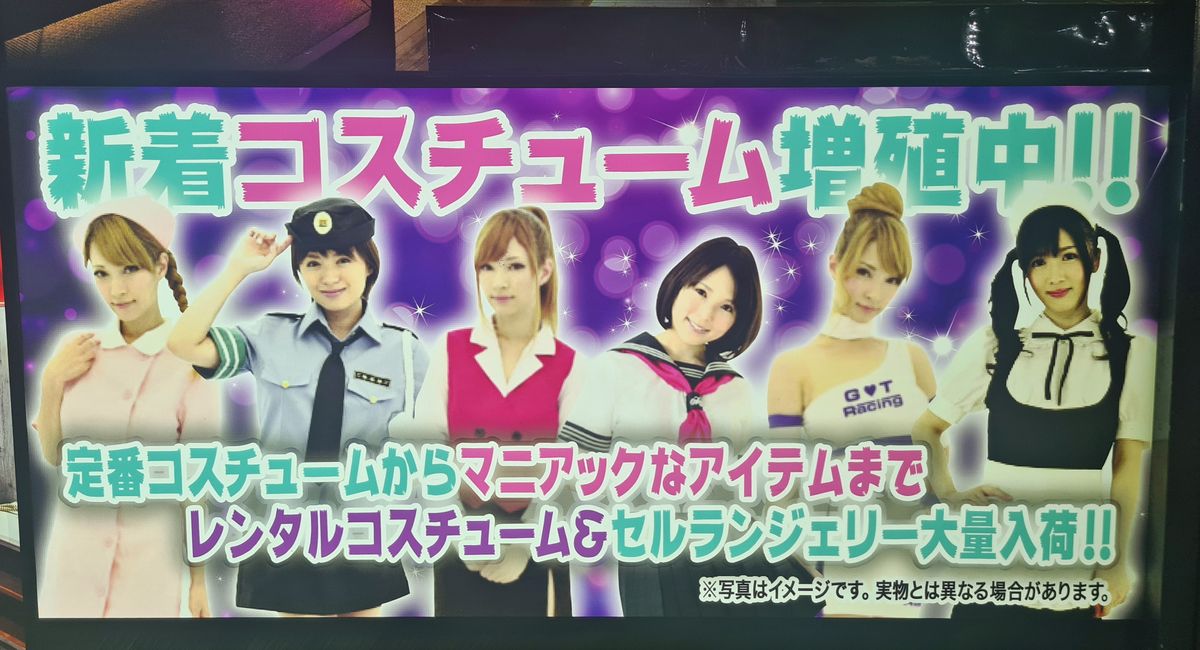
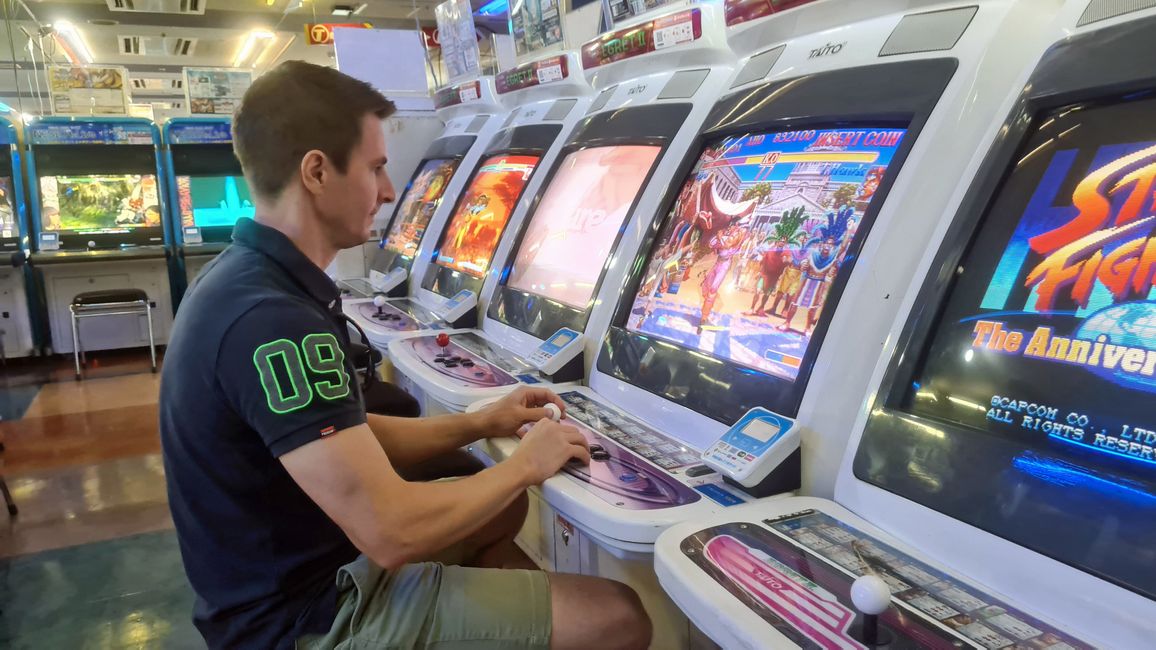

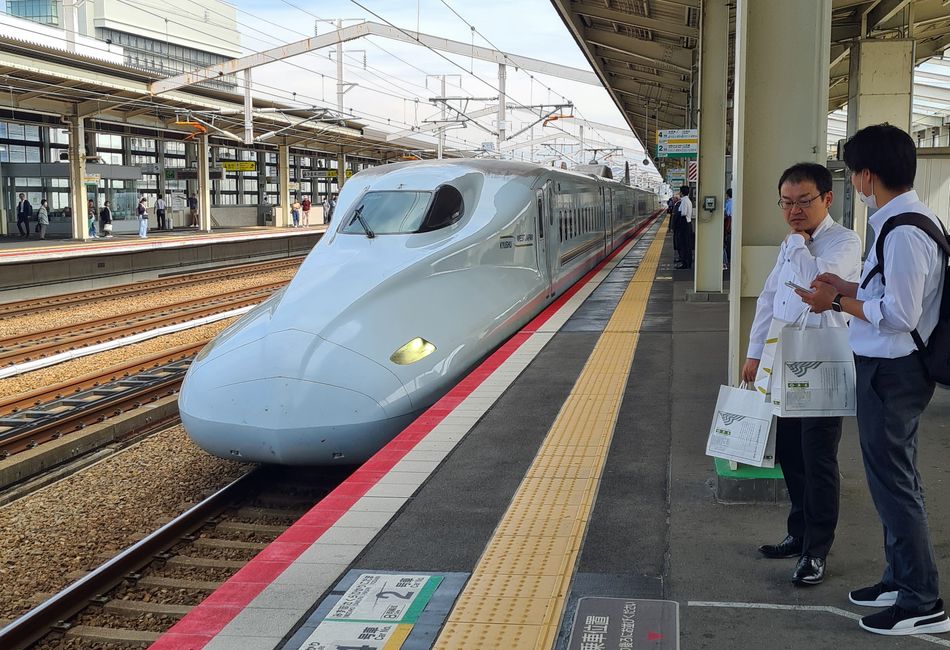
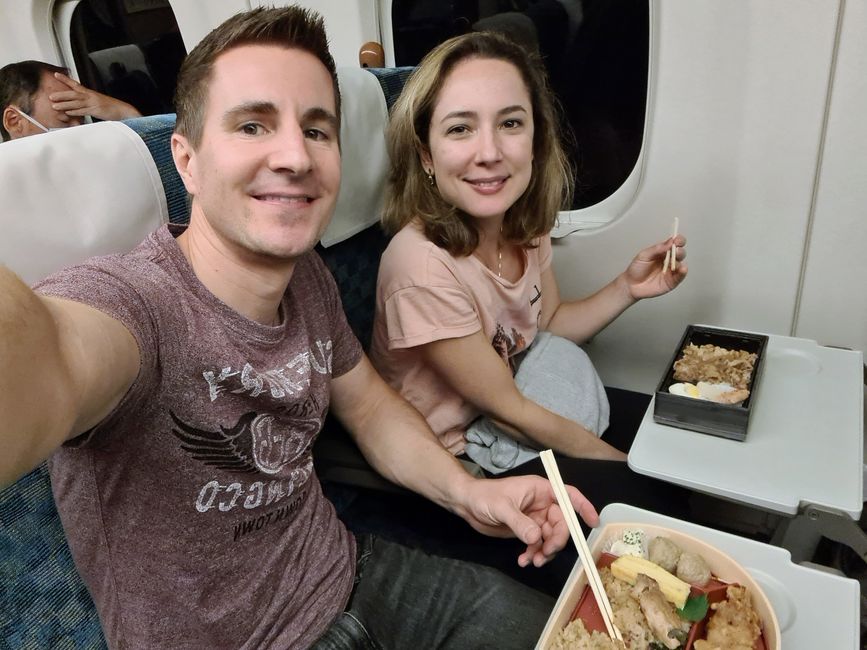
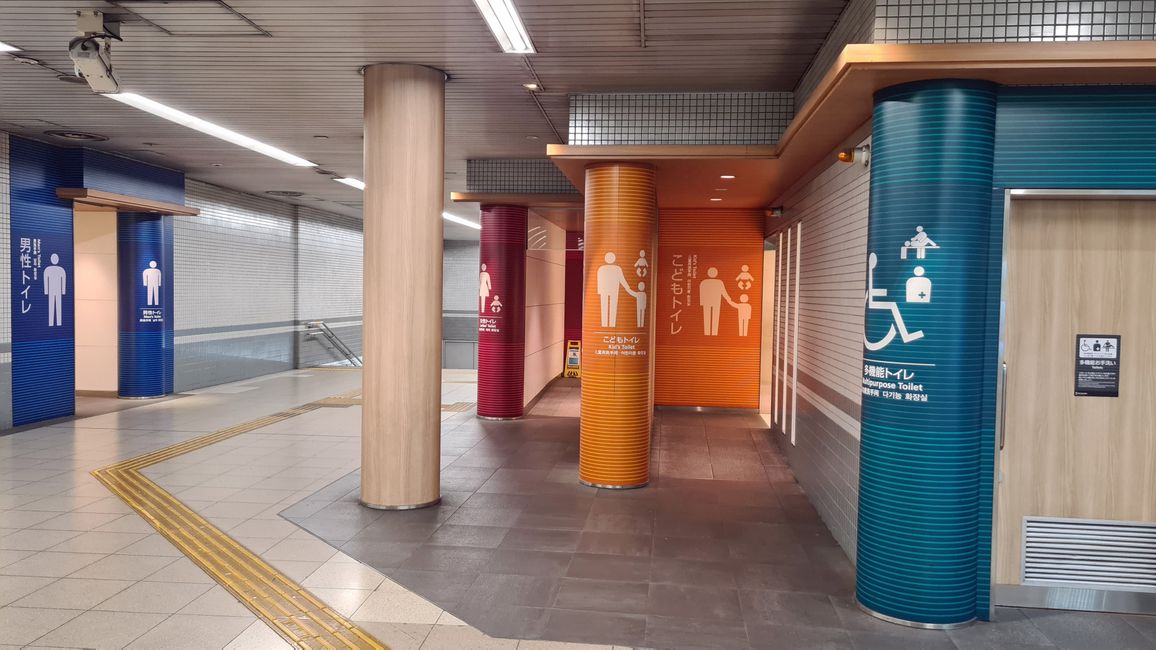
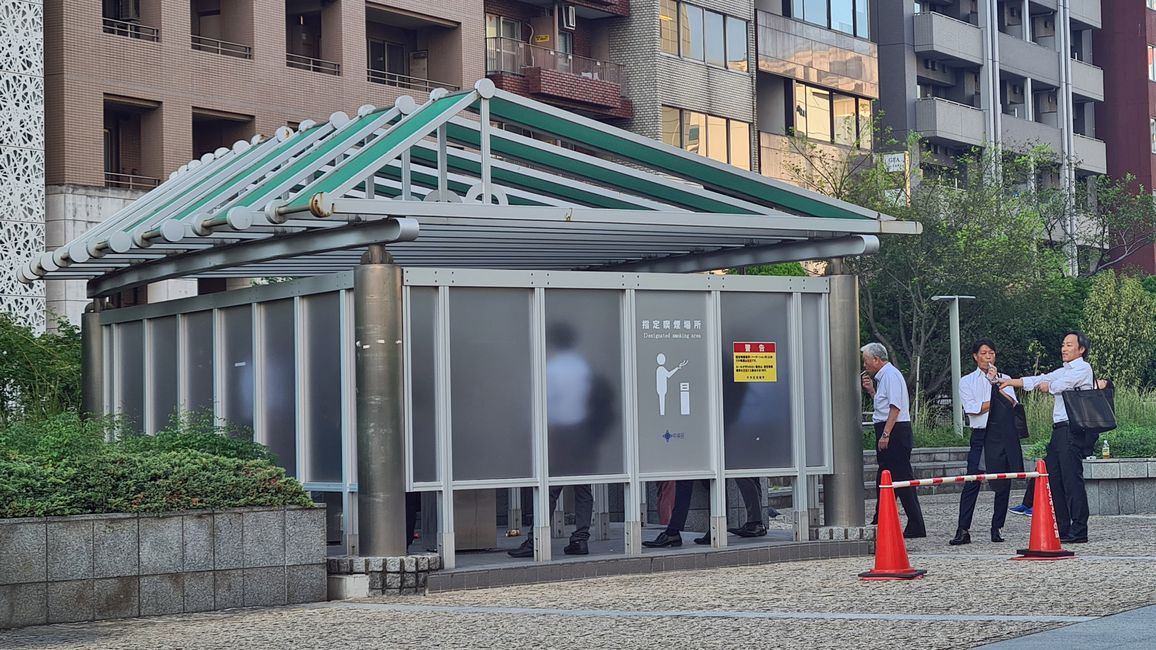
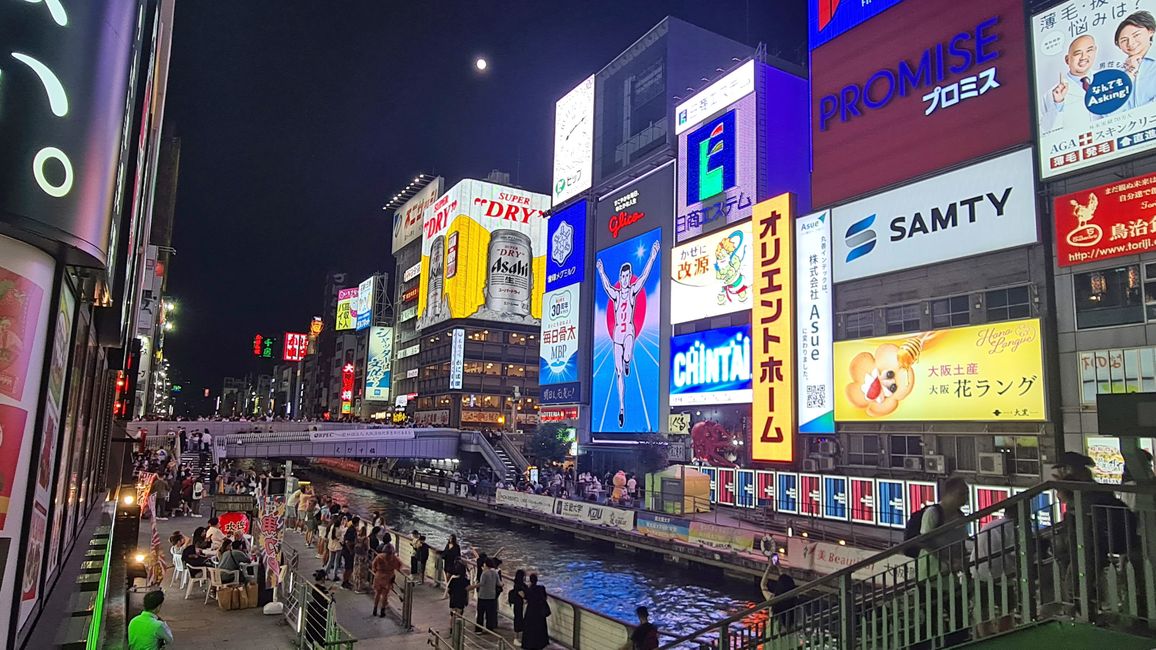
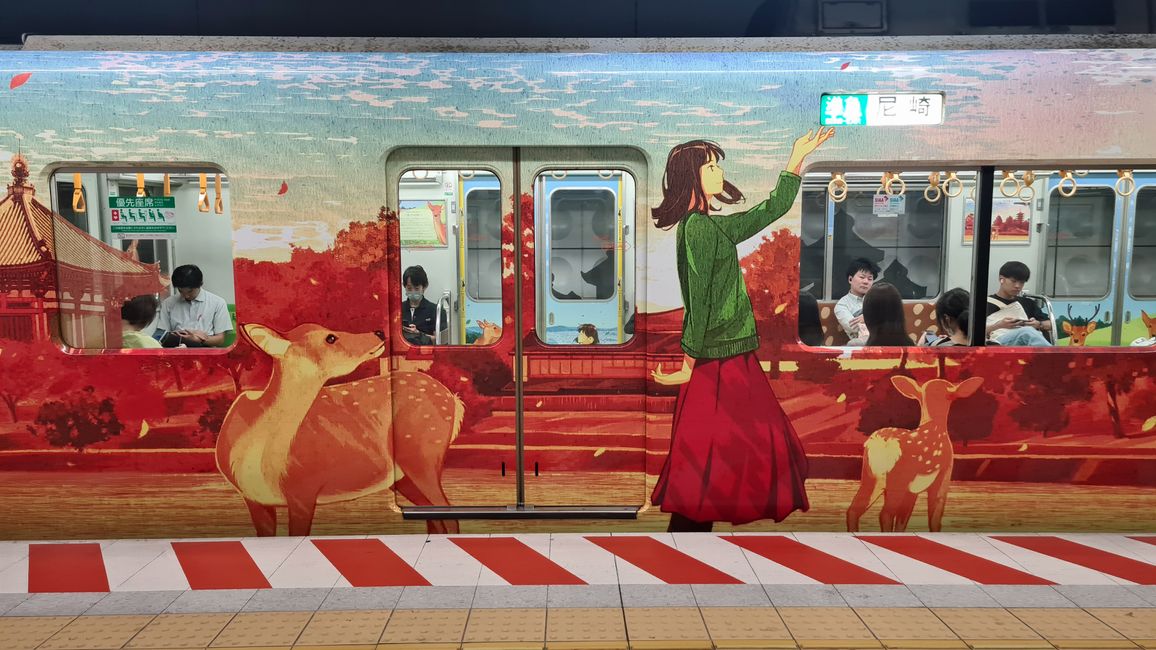
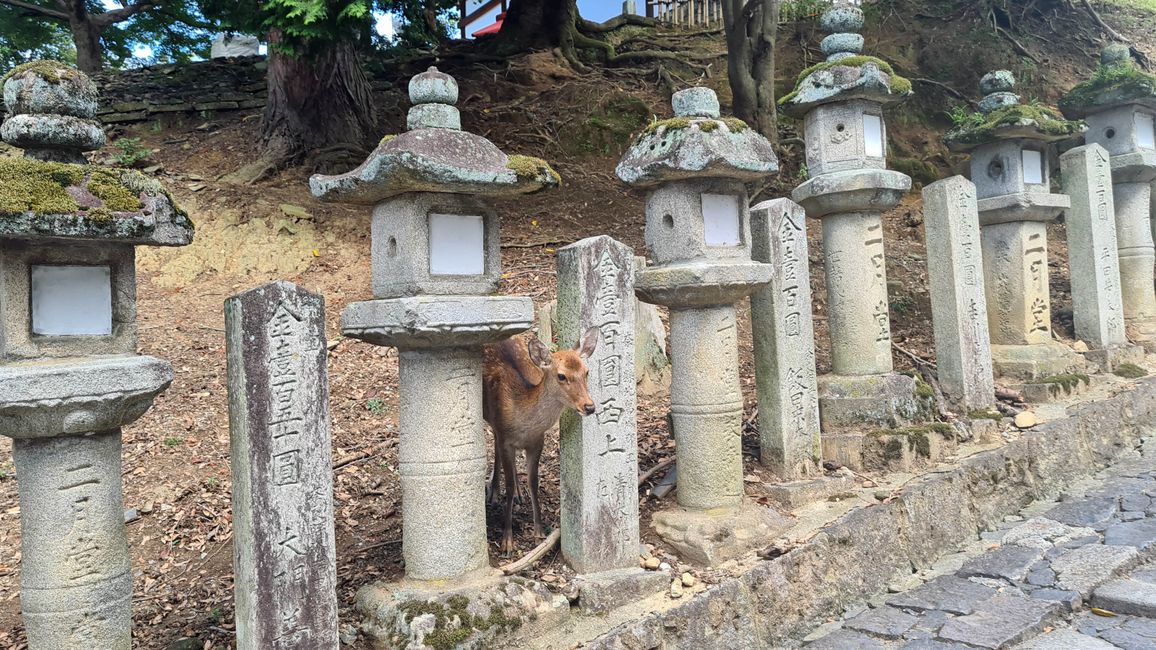
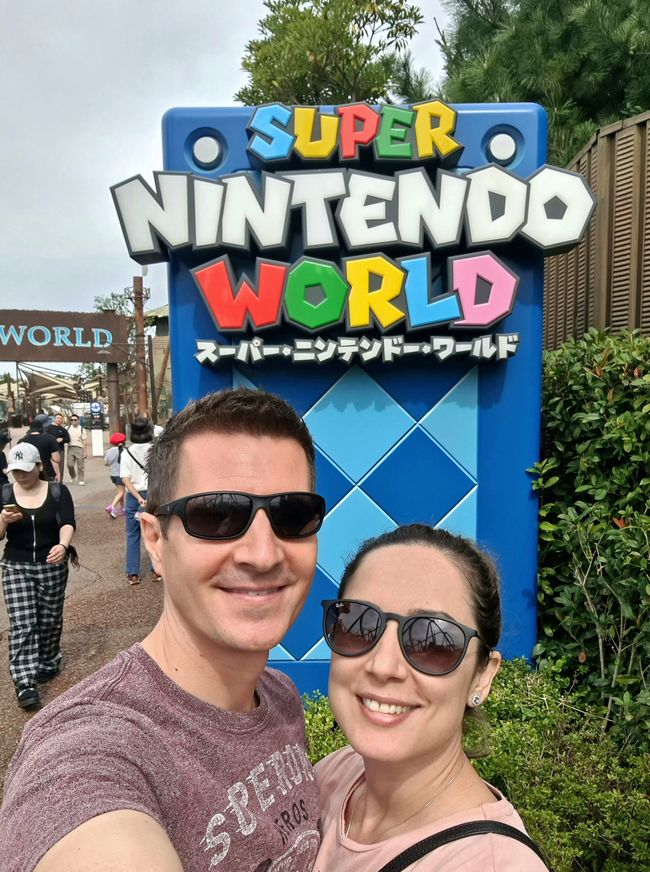
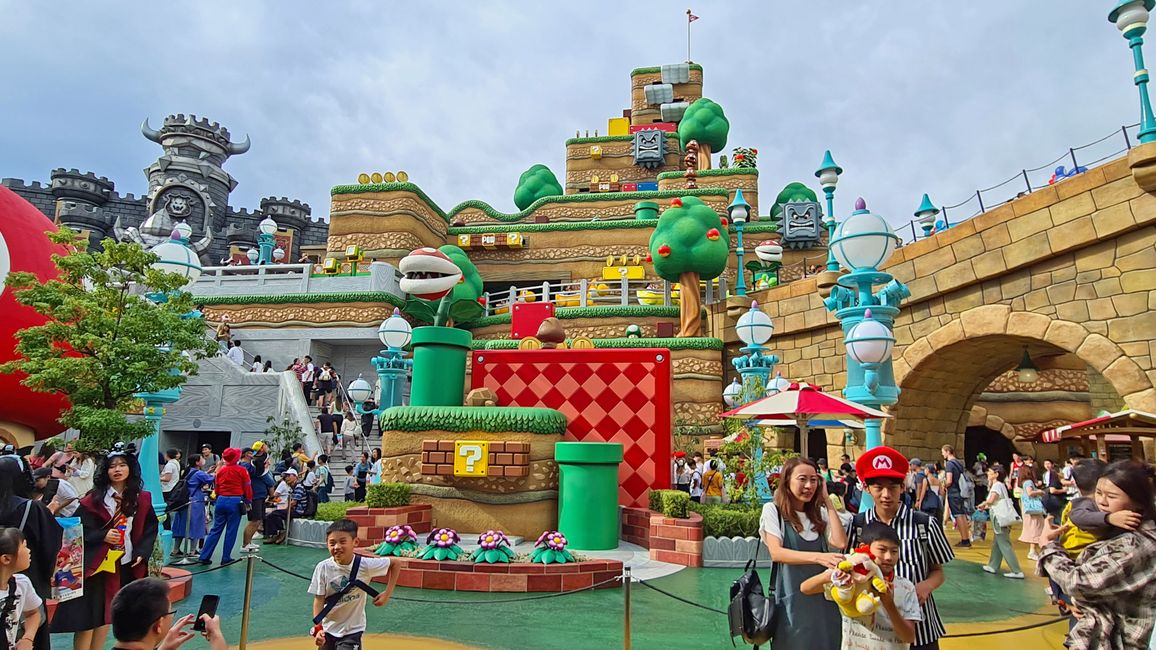
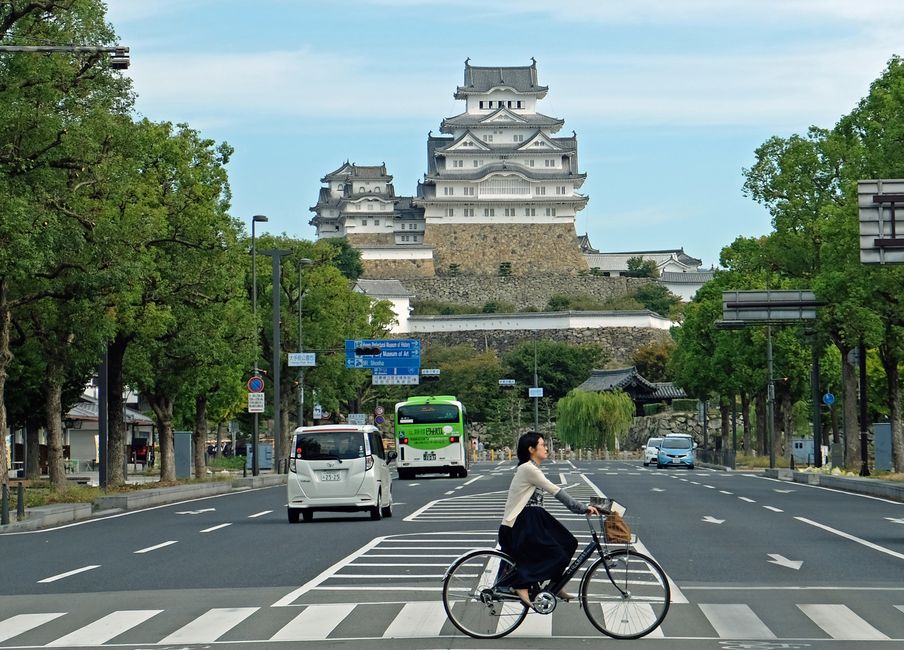
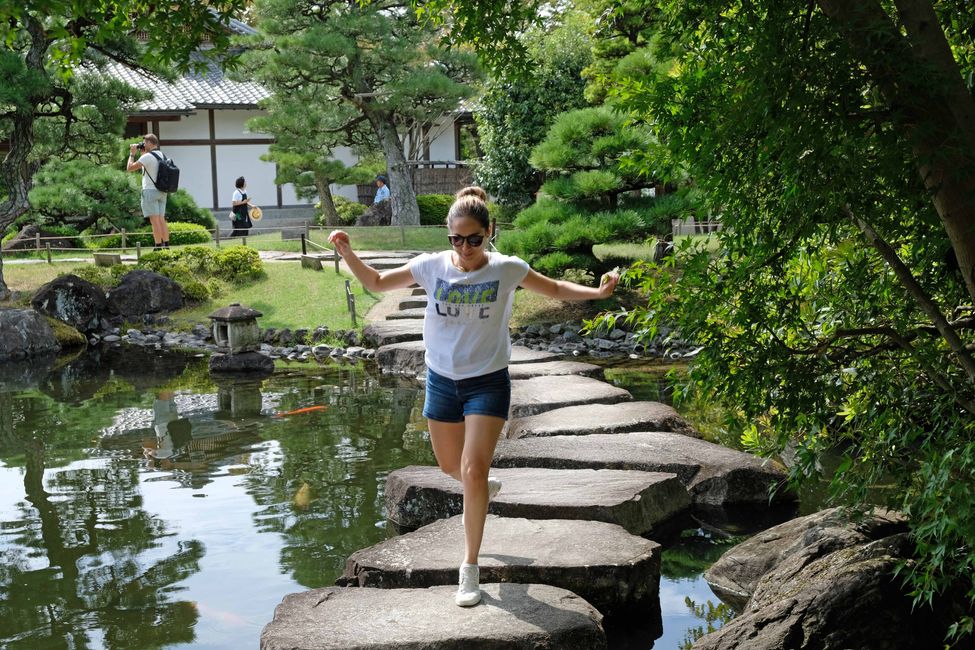
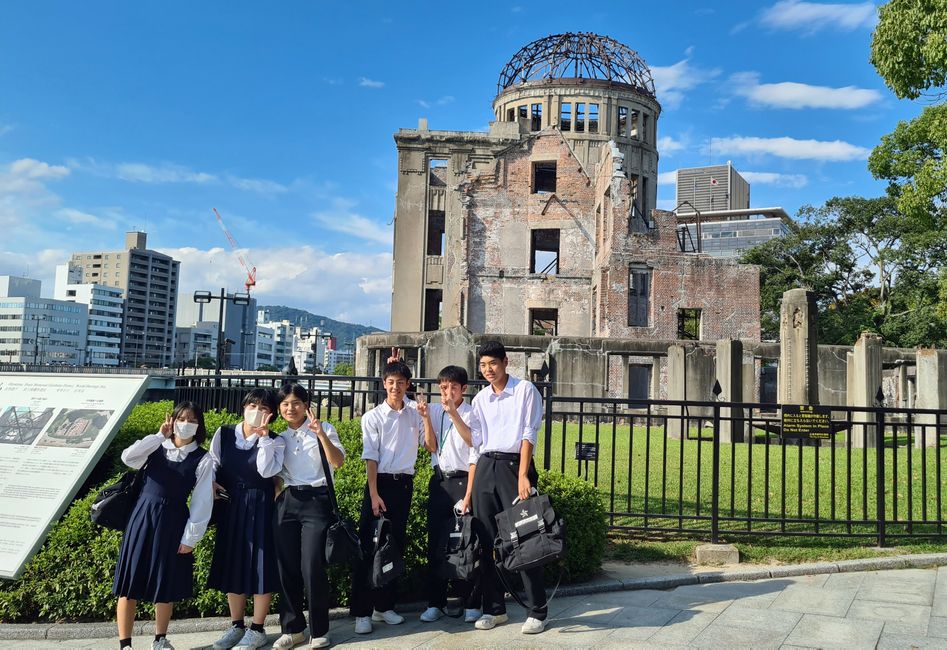
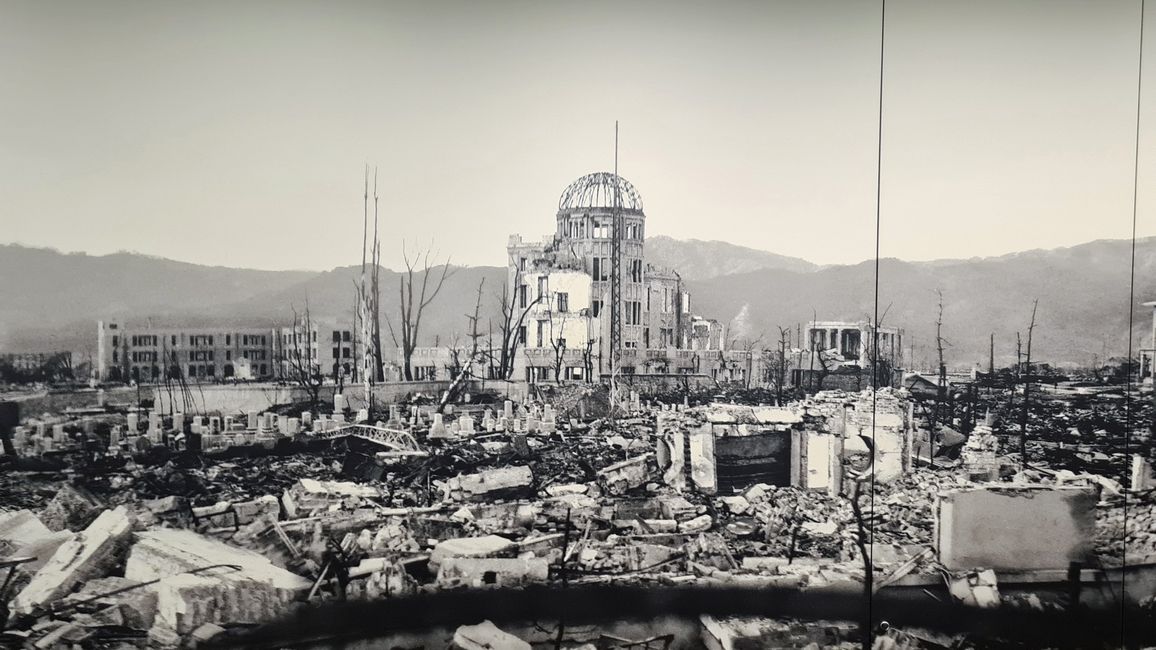
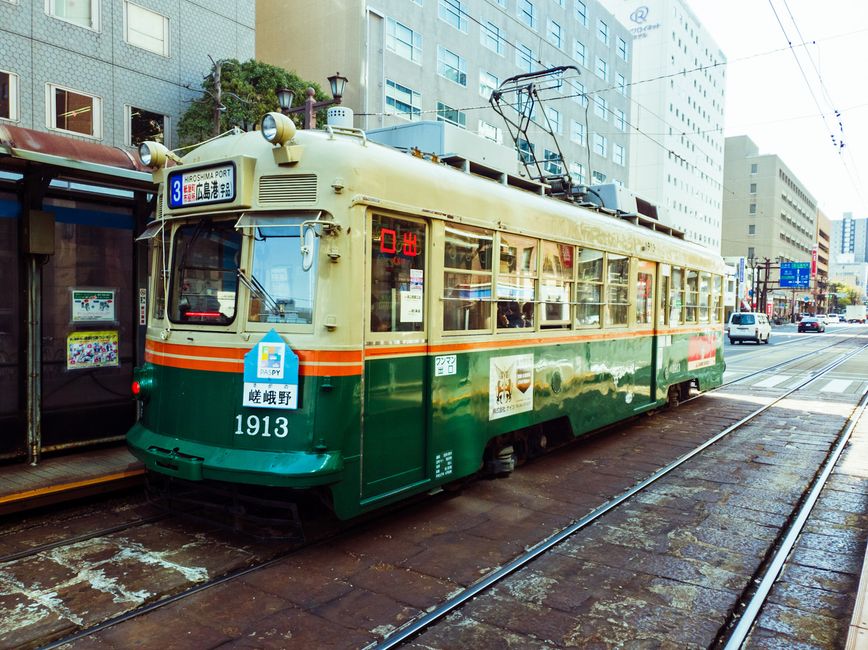
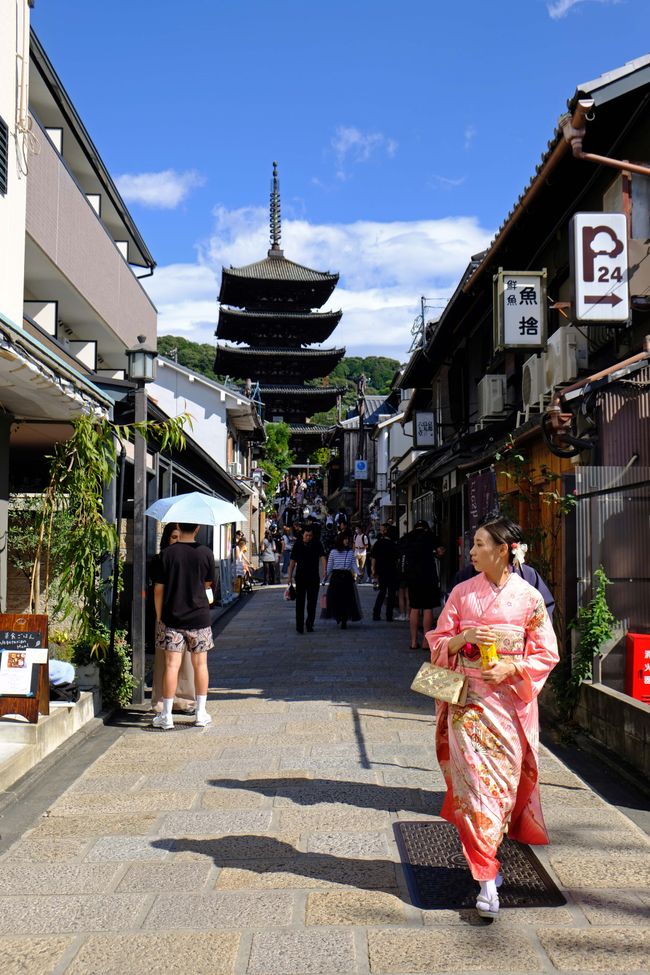
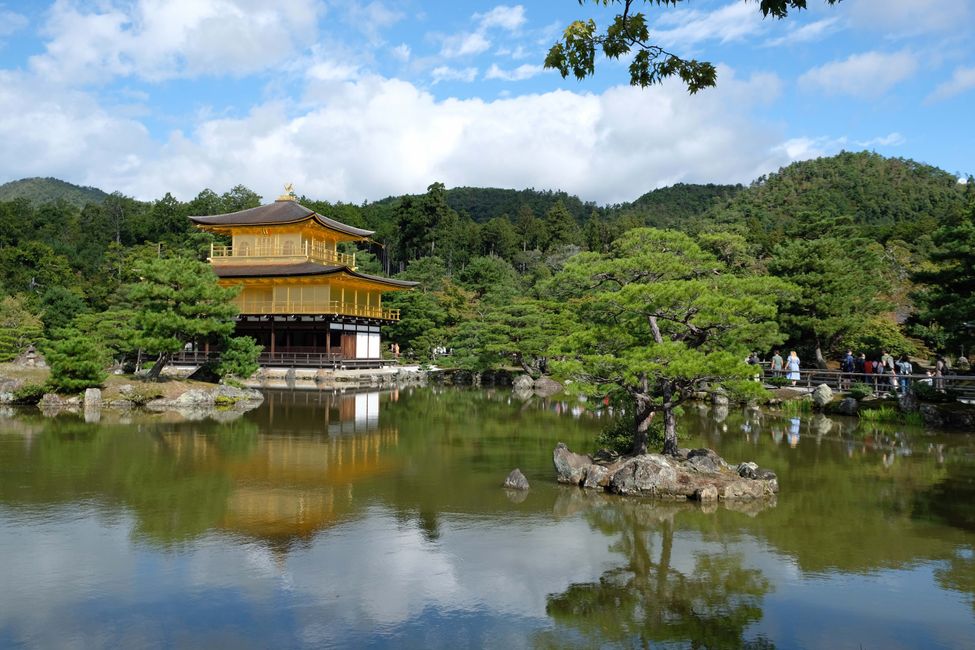
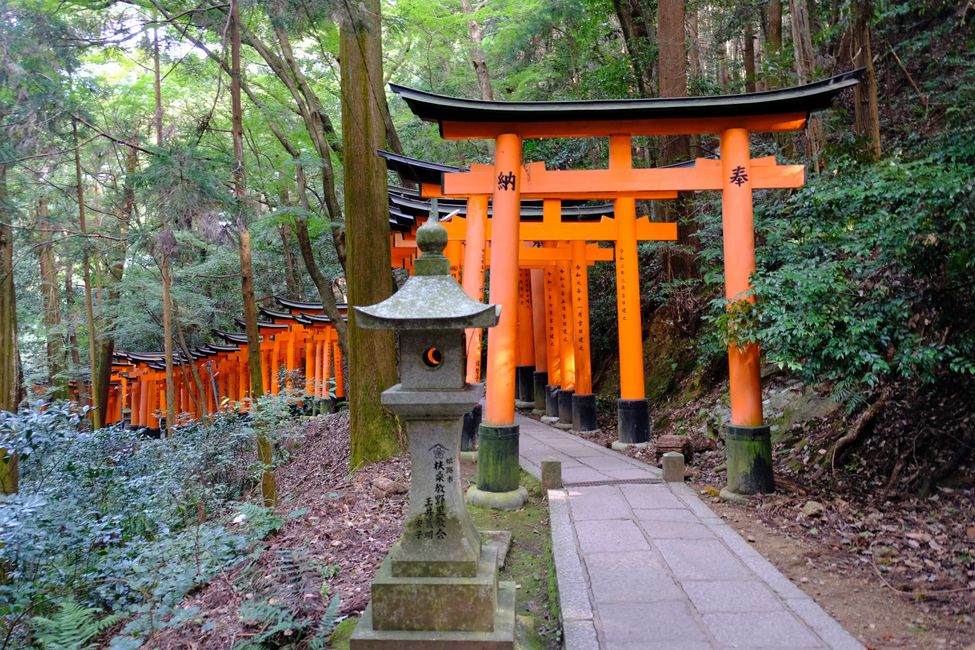
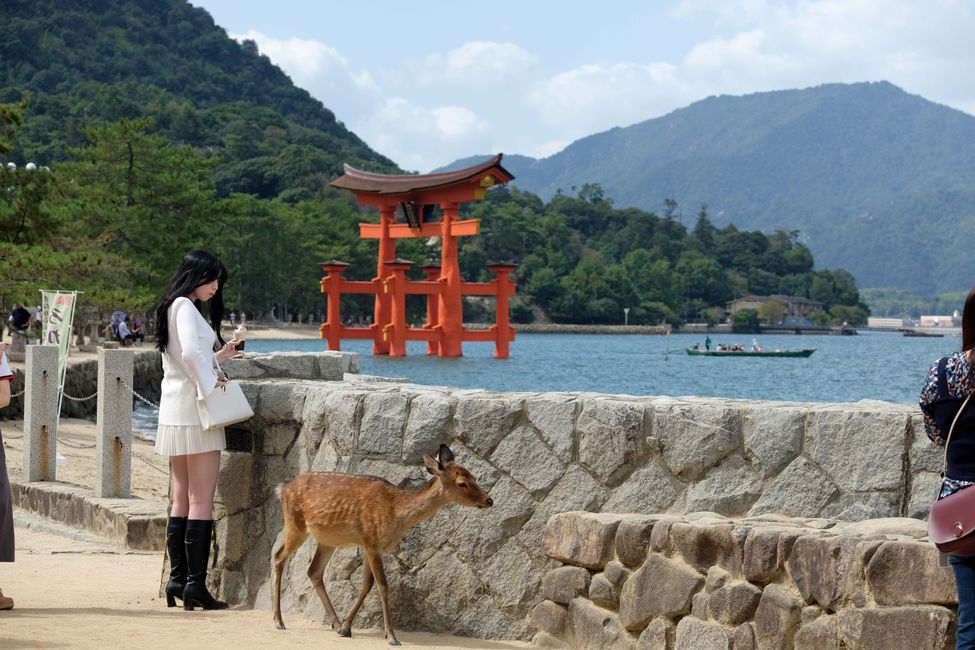
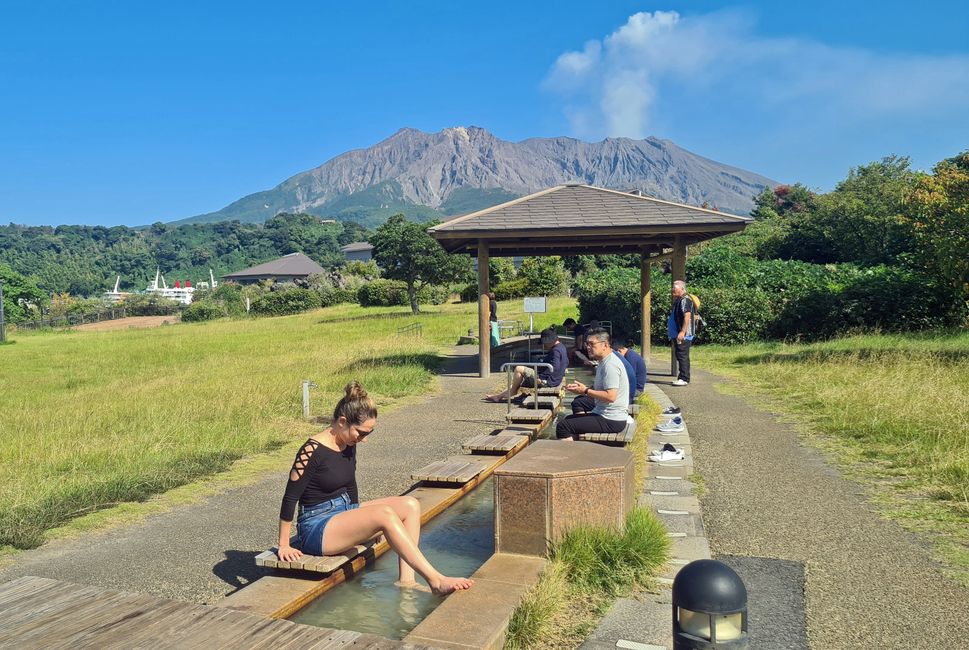
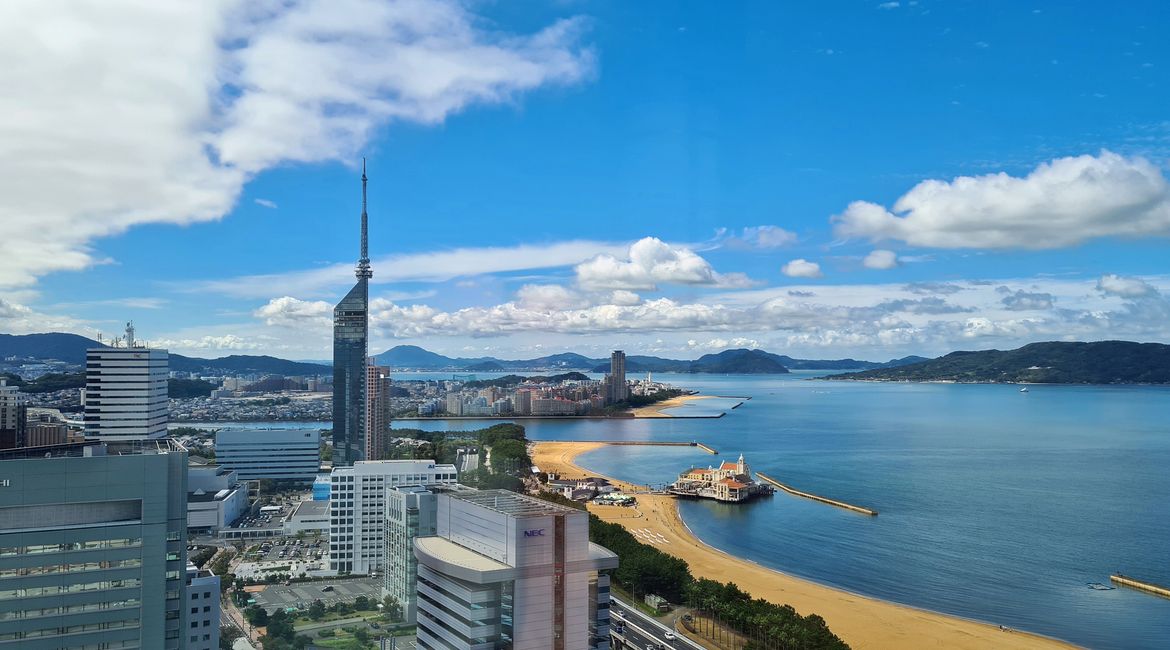
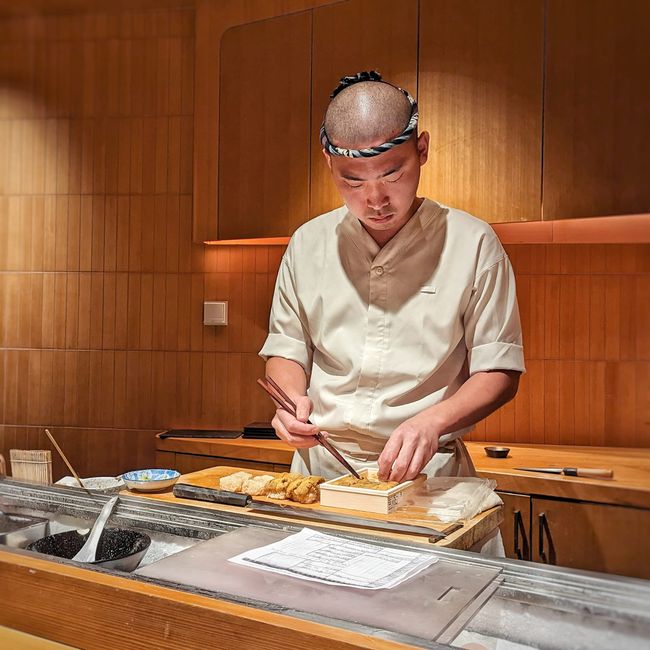
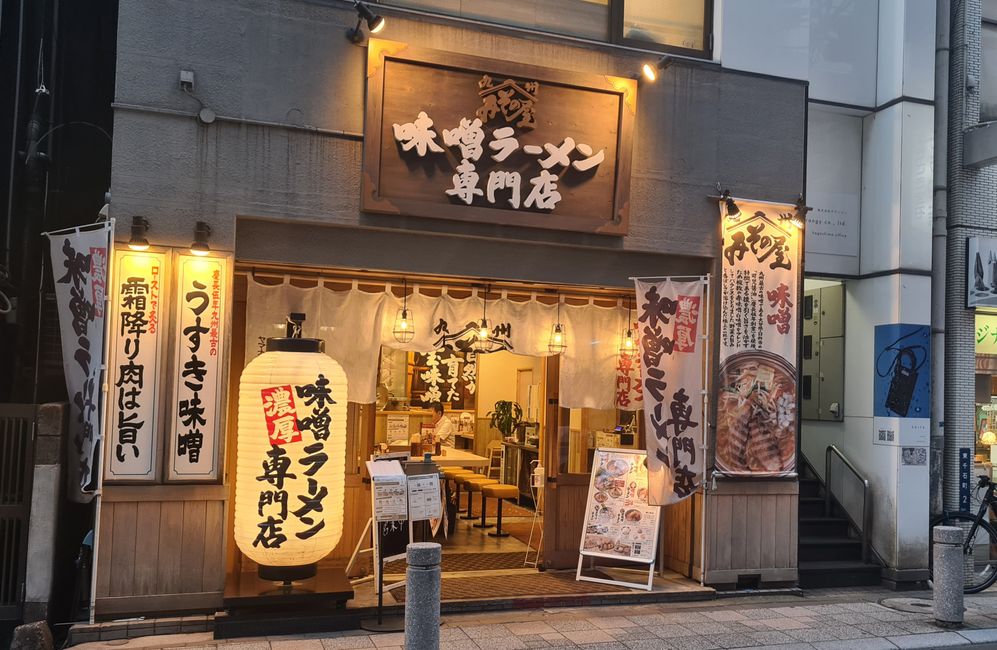
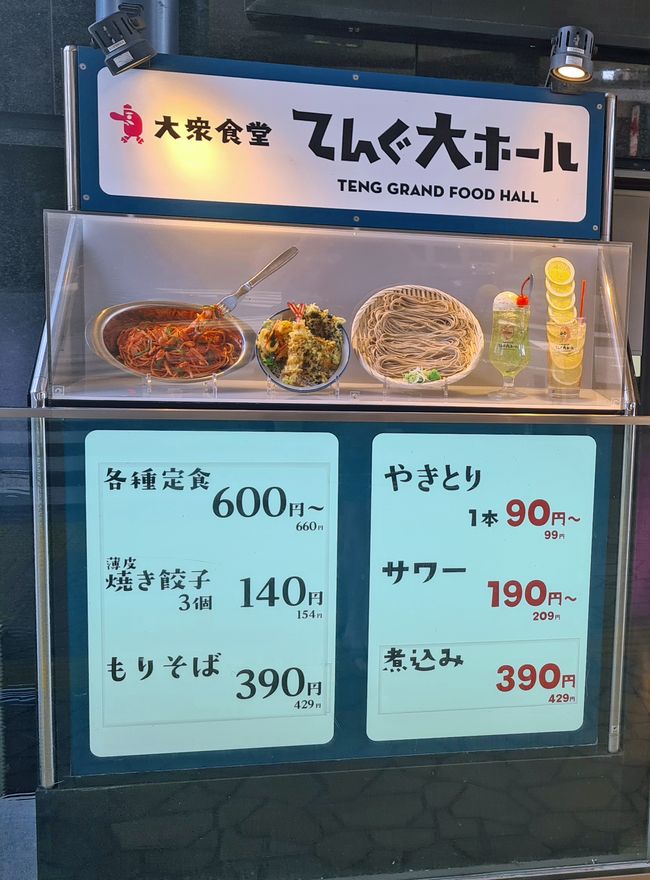
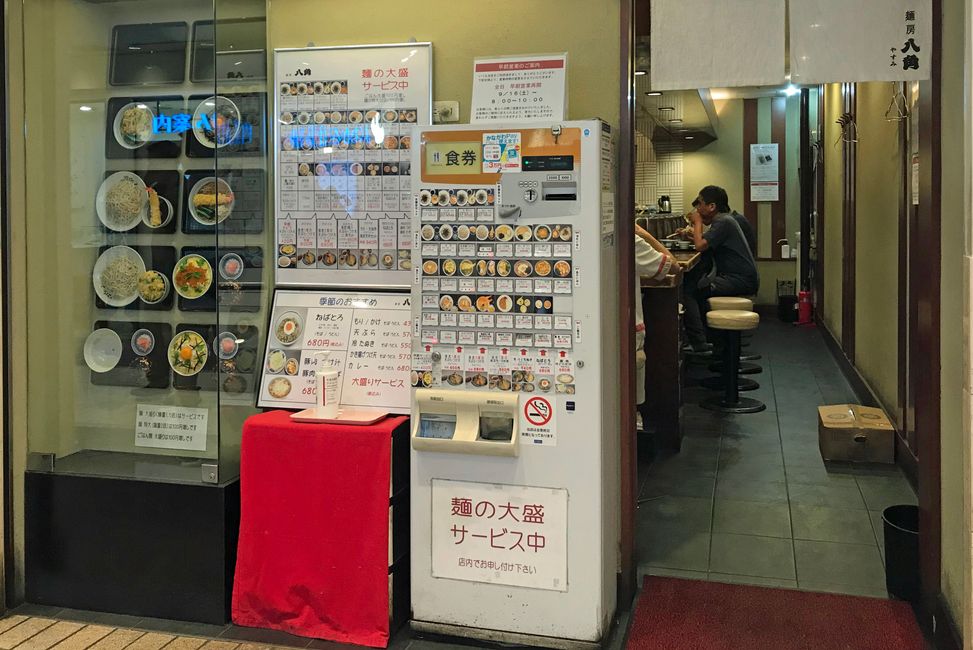
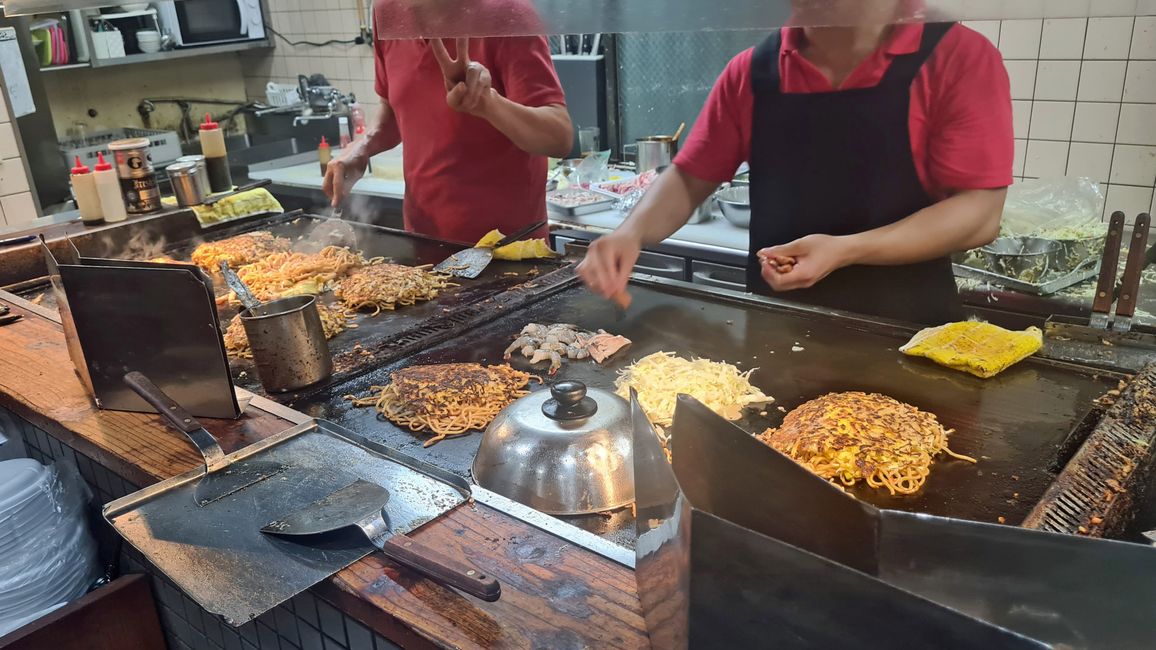
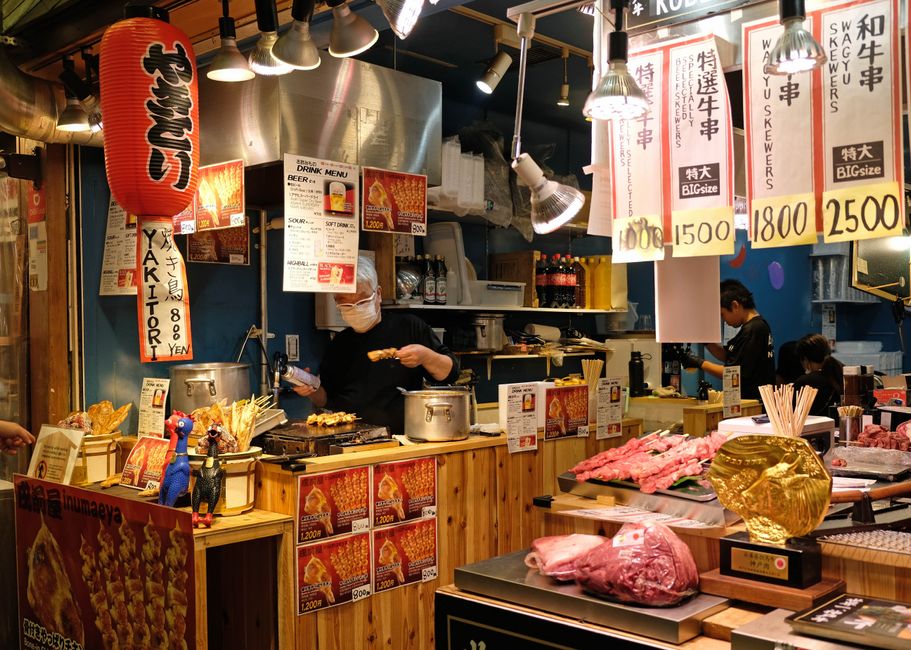
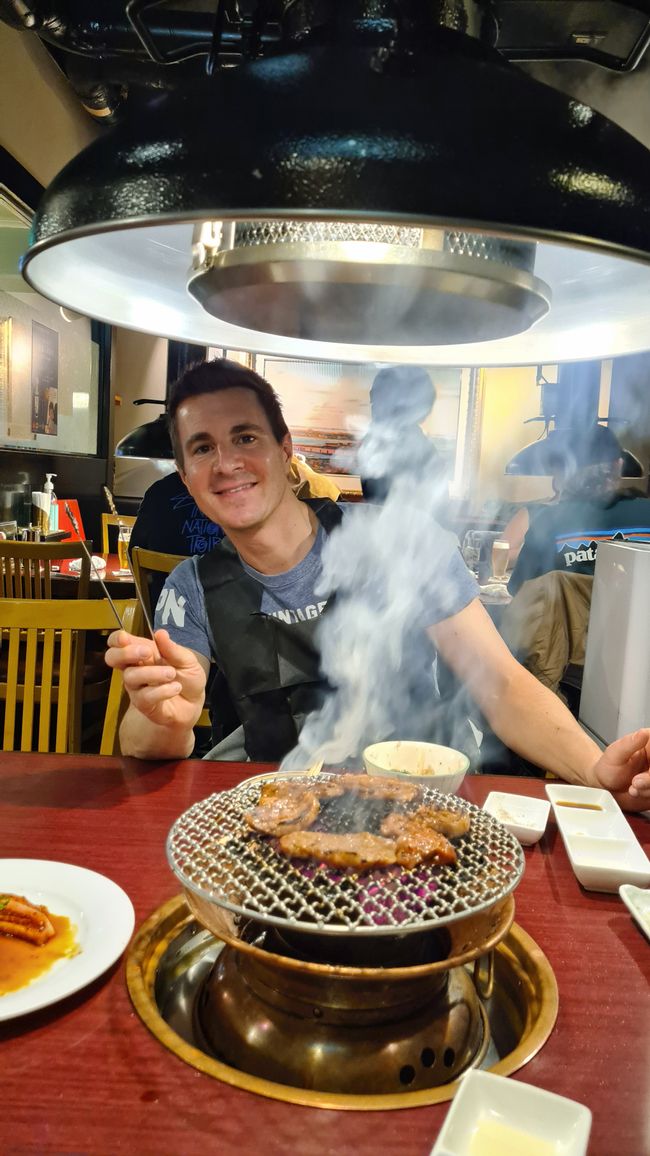
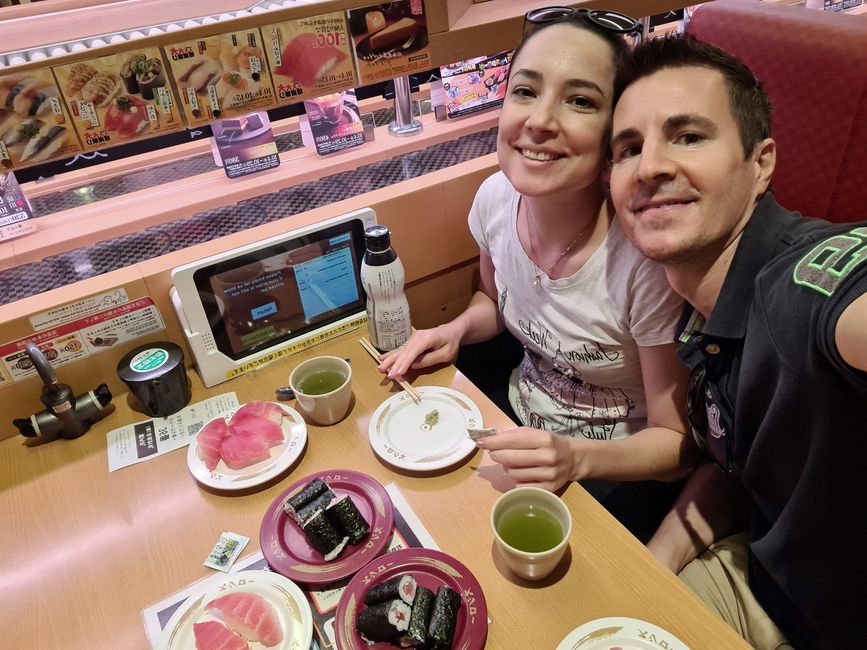
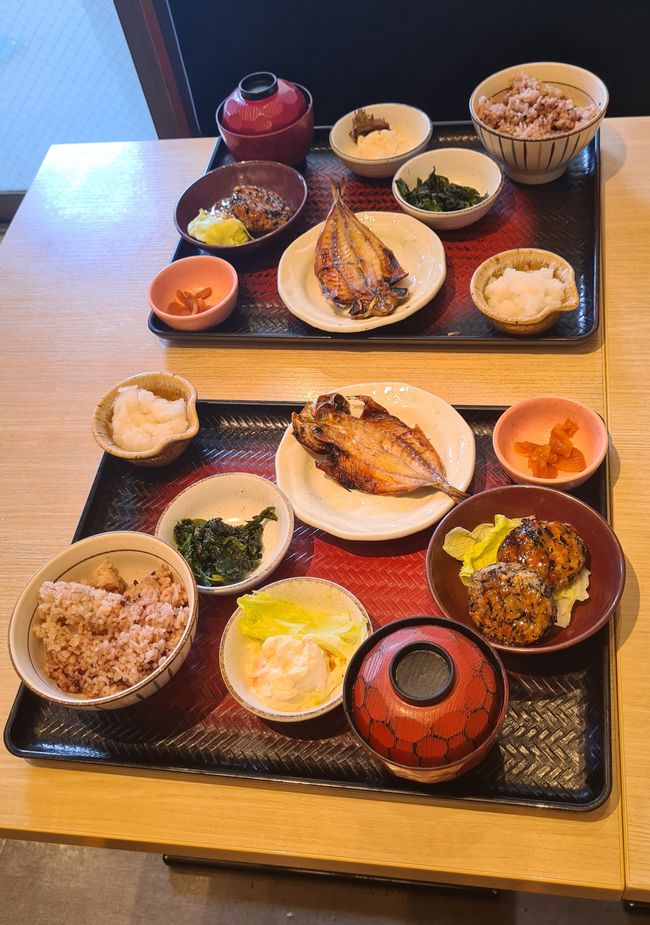
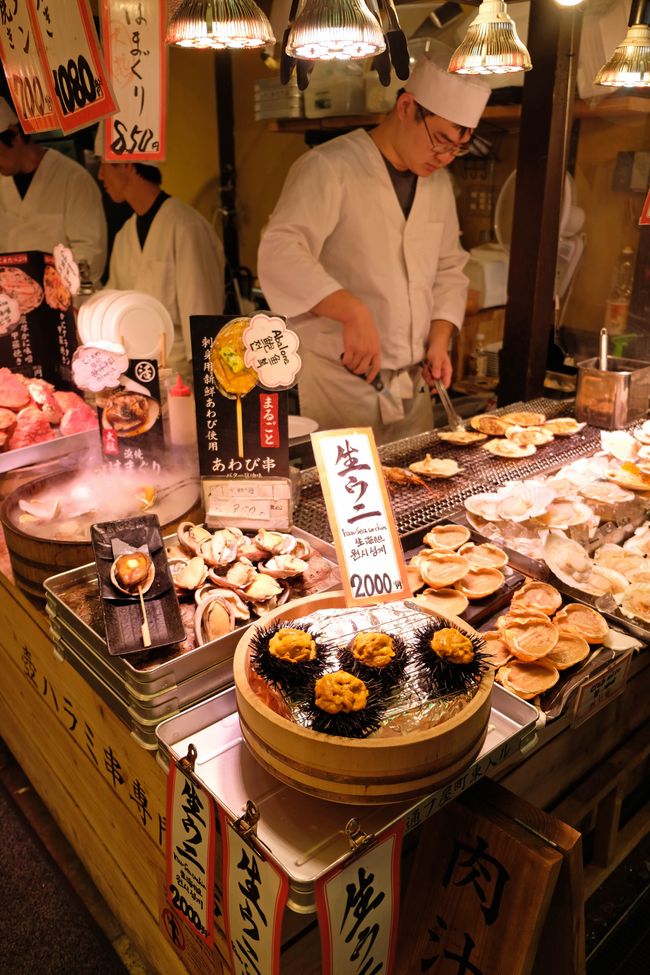
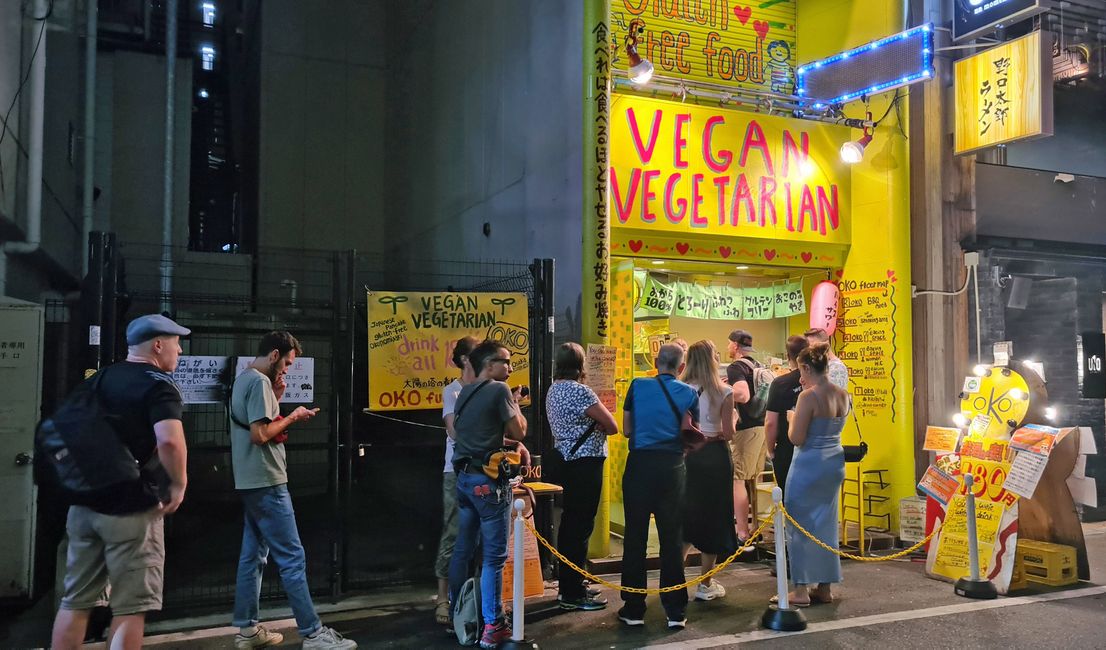
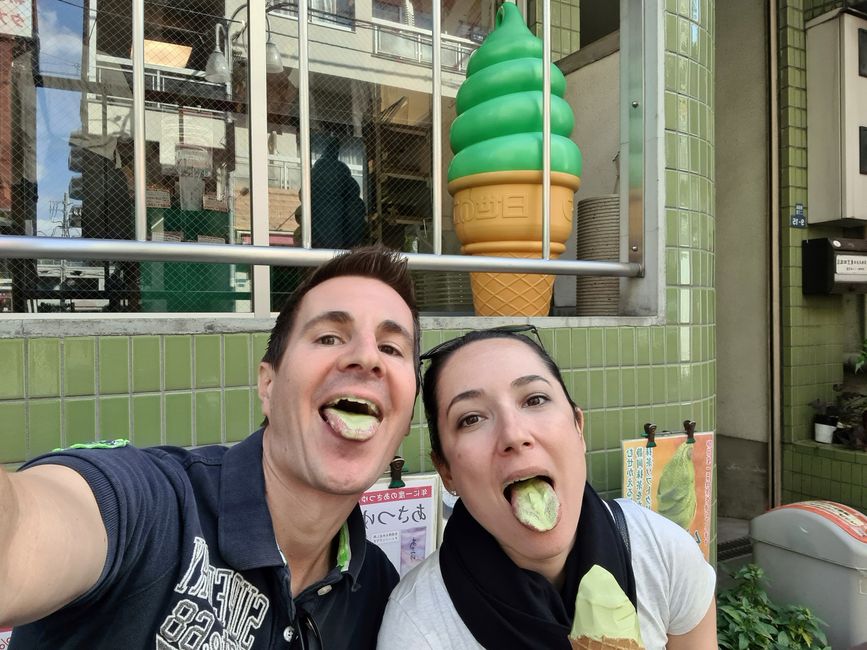

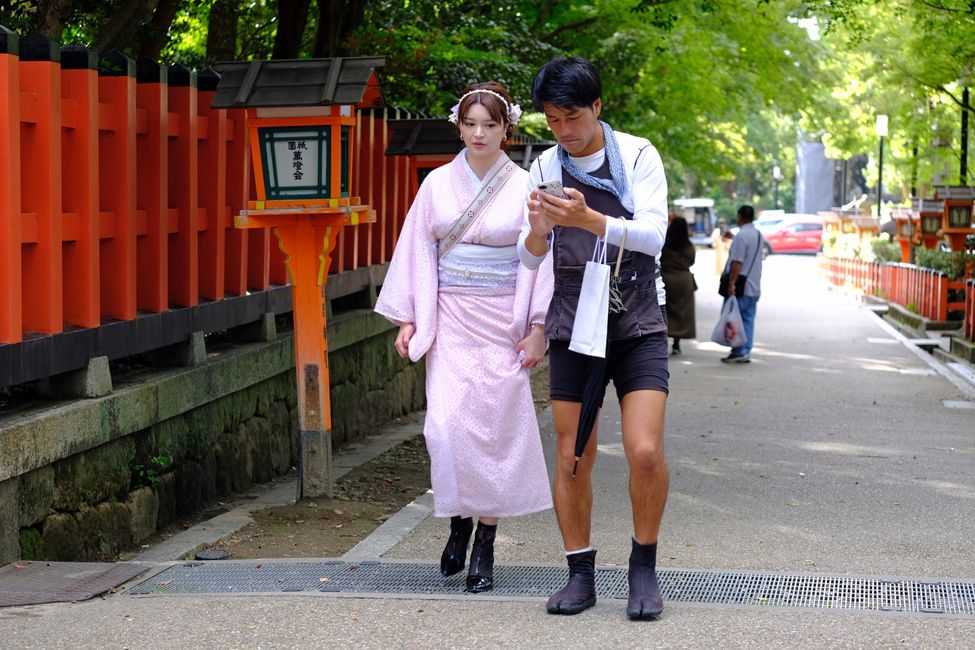
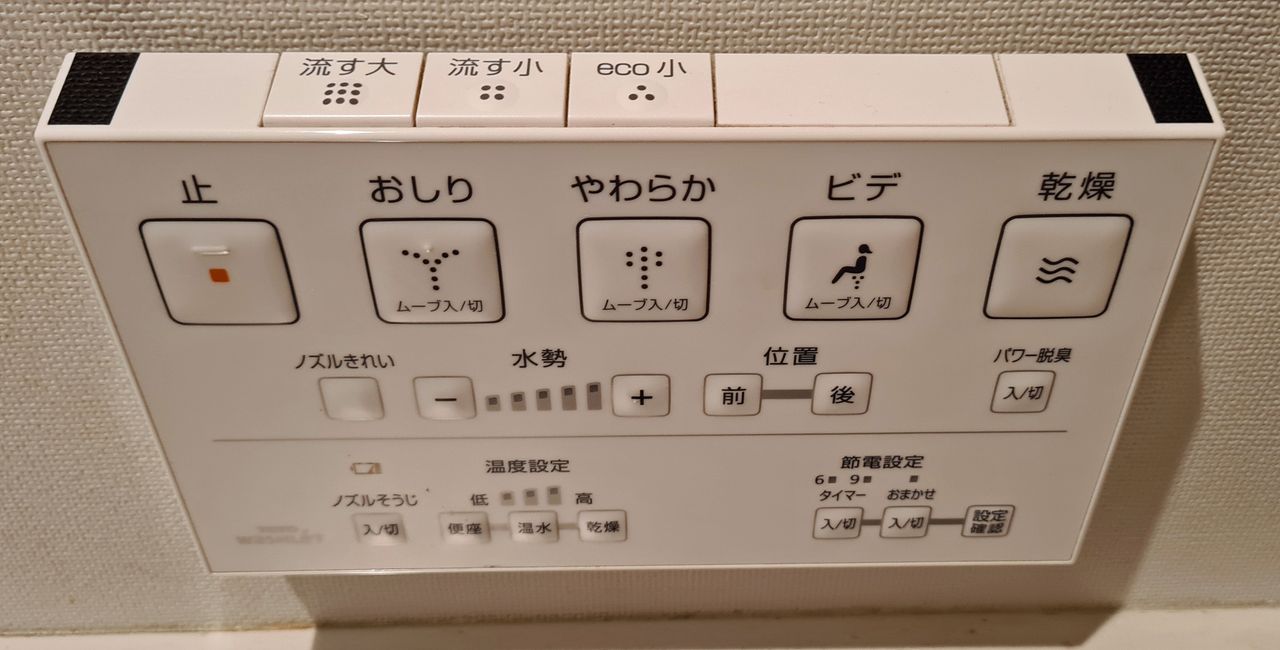

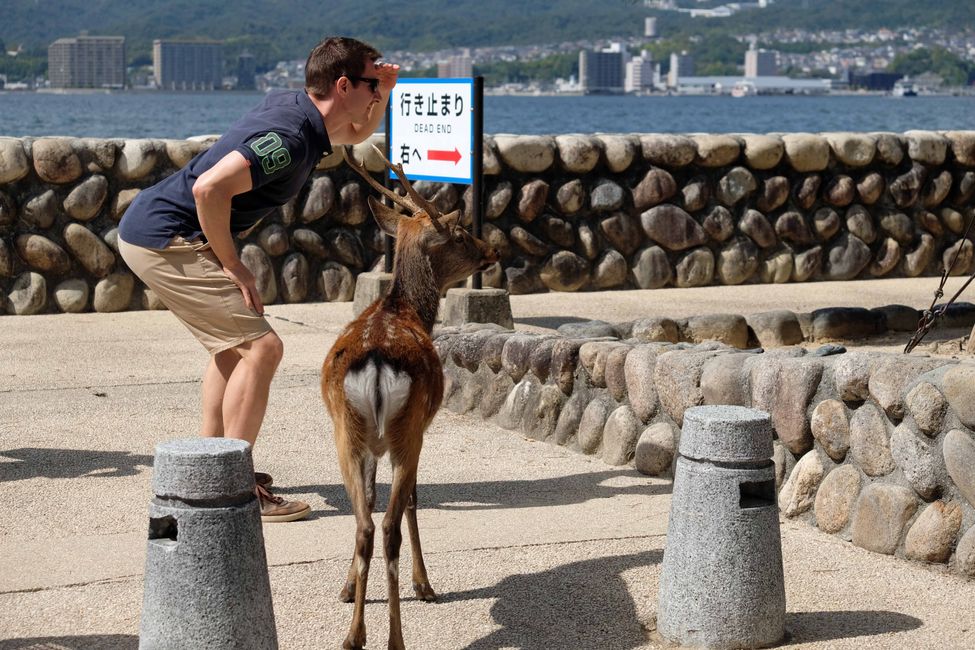
Tsarisa eka Xiphephana xa Mahungu
“Life punishes those who come late” - this is how all our unsuccessful attempts to visit Japan during the cherry blossom season could be summed up. Marco's first attempt failed due to the Fukushima tsunami and nuclear power plant disaster that occurred in spring 2011 - just in time to rebook the flight. Our second failed attempt in spring 2019 was self-inflicted because we dealt with the detailed planning too late and only realized in South America that there were neither direct flights nor cheap alternatives to Japan from there. In the current attempt in autumn 2023, we are of course failing due to the time of year. Nevertheless, the timing isn't all that bad: on the one hand, the yen (the Japanese currency) is currently at a historic all-time low, and on the other hand, the government recently lifted the corona-related mask-wearing recommendation, which makes us optimistic, in the land of the rising sun instead of cherry blossoms at least to see one or two smiles.
Our travel preparation up to departure could hardly be more different: While Marco is absorbed in finalizing and handover work due to his job termination, Yumi spends weeks watching Japanese YouTube documentaries and can't stop raving: "The Japanese live extremely healthily, treat each other very respectfully and are much more community-oriented than we are!”. A picture says more than 1000 words: After the Japanese national team sensationally defeated the Germans 2-1 at the World Cup in Qatar in 2022, the team did not leave their dressing room like a battlefield after a victory celebration, but rather tidy and sparkling clean incl .self-folded origamis as a thank you for the cleaning team. Even the fans collected rubbish in the stadium stands after the final whistle, following the motto “First clean the Germans and then the whole stadium”. Even Germany fan Yumi is excited and bursting with anticipation as we sit on the night flight from Zurich to Tokyo. The Japanese man who sits next to Yumi then puts her ideas in a slightly different light. Instead of water or tomato juice, he orders a red wine and a white wine at the first opportunity. By the time dinner is served, he has already drunk both bottles and treats himself to another Prosecco. And before he tackles the dessert, there's another white wine on top. Afterwards he sleeps without a mask, snores like a bear and only wakes up again when we are served our breakfast, which he acknowledges by sneezing several times without his hand in front of his mouth - yes Meerci! So much for healthy, respectful and community-oriented Japanese people. 😊
A little later we land in Tokyo, where the sensory overload continues seamlessly. The largest metropolitan region in the world with its almost 40 million inhabitants captivates us from the start: skyscrapers as far as the eye can see, neon video signs with integrated speakers everywhere and kilometers of subway stations that are more reminiscent of shopping centers. Nevertheless, there are vending machines on every corner above and below ground, where drinks, snacks, cigarettes, rice and socks are dispensed 24 hours a day. In between, a crowd of people navigates like a colony of ants through the city's urban canyons and tunnel systems, either in business looks, in school uniforms or dressed as cartoon characters. In order to get from A to B on foot, we have to find the right moment to turn on the indicator and cheekily move into the lane, just like on a congested highway. To prevent a crash, there are arrows on the floor and stairs that indicate where you are allowed to walk and where you are not. If you miss your “exit” in this constant stream of people, you cannot simply turn around and swim against the flow, but have to wait for the next intersection in order to successfully merge in the opposite direction.
We are now happy that we decided to travel to Japan with only two hand luggage suitcases, despite the 23kg baggage allowance per person. Our most valuable piece of luggage is the “Japan Rail Pass”, a temporary general public transport subscription. This means we now have unlimited use of the famous high-speed train “Shinkansen” (>300 km/h) throughout the country and can travel around for free on many urban public transport lines. Because Japanese Shinkansen passengers only travel with hand luggage (thanks for the info, YouTube!), we integrate in an exemplary manner and relax from our seats watching other fellow travelers struggling with the lack of a luggage rack. We also feel super prepared in other ways: we buy the cheapest data SIM card, install a photo app with a character translation function and have our QR code at hand so that we can reclaim the Japanese VAT when we shop. But we quickly realize that there are things in Japan that are impossible to prepare for. This includes the first visit to the toilet. As soon as you sit down, you are startled for the first time: “Uii! The toilet seat is hot!” Exactly, from autumn to spring the toilet seat is pleasantly preheated. Two seconds later the next surprise: «Aah! Why is this thing flushing now?!”. Don't worry, you won't get wet, it's just a small bowl of wetting to prevent urine scale formation and skid marks. If you really want to wash up at the end of your business, the question still arises as to how you can wash up at all. There is a control panel with over 20 buttons, all with Japanese characters and some with pictures, but you can't figure it out. This is because there are three small buttons for flushing alone (for small, medium and very large stores). There are also buttons for intimate cleaning including water jet intensity, the drying hairdryer and of course the noise button to drown out the body's own sounds. Apparently there is no international voice recognition function yet, because Marco's cry for help ("I just want to flush!") goes unheard in the high-tech toilet. We later learn that properties such as the ideal angle for the water jet, the perfect water pressure and the most comfortable temperature have been researched and optimized in Japan for years. In the future, Japanese toilets would also like to incorporate medical features such as measuring blood sugar, blood pressure and body fat percentage, as well as a personal greeting when entering the toilet. Holy shit! We are impressed and irritated at the same time - a feeling that will stay with us over the next three weeks in Japan.
Sticking with the toilets for a moment (yes, they are really fascinating): we are impressed that there are public, free and sparkling clean toilets everywhere in Japan! And even if there isn't one in sight, you can easily go to any restaurant here and visit the quiet place without consuming anything. The employees even thank you if you just use the toilet and comment on the flying visit with “Thank you for your trust!”. This unrestricted politeness has something almost irritating about it, for example when one day in a restaurant Yumi uses a little force to open the seemingly stuck door to the only women's toilet and then meets a puzzled Japanese woman who is sitting on the toilet. Yumi is completely frightened, quickly closes the door and returns to our table embarrassed. Shortly afterwards, it is the Japanese woman who approaches Yumi as she leaves the restaurant and apologizes profusely for the unpleasant incident - including a polite bow! Despite the language barrier, we quickly learn that decency and consideration are extremely important in Japanese society. The last thing the Japanese want to do is attract negative attention or disturb other people. For example, it is frowned upon to make phone calls or listen to loud music with headphones on public transport. As with us in the cinema, you should generally avoid conversations on public transport and turn your mobile phone to silent (there are even announcements at the stops). It's allowed to bring pets, but it fits in quite well that we only ever see the same two Japanese dog breeds (Akita and Shiba Inu), whose most notable characteristic is that they don't bark. Until now, we always thought that we Swiss were world champions in following rules and complying with laws, but how the Japanese consistently adhere to all regulations, even in anonymous big cities, is once again remarkable and irritating at the same time. For example, when a pedestrian light on a one-way street in Tokyo lights up red and there is no car in sight, all Japanese people stand patiently and wait until the light turns green. It is all the more astonishing that the many cyclists in the city allow themselves to do just about anything, for example navigating around the already overcrowded sidewalks. But they are also decent, for example the older cyclist who thanks us as we drive past because we make room for her: To do this, she briefly stands up from the saddle, bows gratefully over her handlebars, but almost loses her balance and can Luckily, you can just catch yourself!
What's even more difficult for us than understanding Japanese traffic rules is following the country's numerous unwritten laws. It starts with tipping, which is considered very indecent in Japan (it would suggest that the employees don't earn enough). It continues with blowing your nose in public, which in Japan is about as bad as vomiting in your purse. Anyone who has a tattoo must cover it with a large plaster before visiting a public pool. Eating, drinking or smoking on the go is an absolute no-go and regardless of whether you are thirsty in a restaurant or as a guest in someone's home, it is considered very indecent to pour a drink into your own glass (you always have to serve someone else first and wait for that person to do the same). Luckily, we get a lot of survival tips on our first day in Japan because we can meet two of Marco's experienced colleagues. On the one hand, Thomas, who coincidentally is visiting Tokyo again at the same time, and on the other hand, our mutual colleague Alex, who has been living 30km from the city center with his Japanese wife and two daughters for several years. With Alex we get to enjoy one or two authentic experiences, for example when we execute impressively good sake directly in the convenience store or choke down irritatingly raw sea urchin in the sushi gourmet temple. In between, we visit viewing platforms day and night and cannot help but be amazed at how huge Tokyo is, even though its residents have to live in a very small space due to the horrendous land prices. We realize that people here don't enjoy hanging out in 10 square meters at home when we go to a café and find numerous students and home office lists who are sitting behind their laptops all day long and enjoying the free... Enjoy tap water. To ensure that the café still has the necessary footfall and sales, the seating is arranged in a narrow chicken-laying battery style and provided with partitions. And here too, of course, the following applies: Anything that doesn't bother you is allowed - basically nothing at all. Nor is there a lively coffee conversation for two, which we would actually like to have in order to finally discuss the details of our next three weeks in Japan.
Ultimately, we find the Shinkansen trains the perfect law-free public space where we can research, discuss, eat and chat in peace - including WiFi, electricity and of course clean toilets. Luckily, no one understands our planning discussions, which sometimes turn absurd due to the very similar sounding Japanese places (Marco: “Do you mean Matsuyama or Miyajima?”, Yumi: “I said Matsushima!”). Ultimately, we agree that we will drive south from Tokyo and almost without exception enjoy three sunny early autumn weeks with a pleasant 25-28 degrees. The only two fixed points that we use as a guide are the return flight to Zurich and Marco's reserved day entry to Supermario World in Osaka two months ago 😊 Coincidentally, Marlon lives in Osaka, an acquaintance of Yumi's, whom we of course also visit and who gives us the brings you closer to local food culture. Over time, we get sore muscles in our fingers from eating so much with chopsticks, but our stomachs can handle it. This is not surprising, because in Japan a lot of emphasis is placed on quality and hygiene and the food tastes great everywhere. We order and share everything we can, until one day Yumi discovers a small white worm in her black bowl. We call the waitress and kindly point out that something might be wrong in the kitchen. But the nice lady isn't surprised, smiles and says: "It's completely normal and edible. It belongs to the menu next to you». By this she means the dish that Marco had ordered for himself and only gave to Yumi to try, thinking that the white stuff was finely chopped spring onions. The eyes are now directed at Marco, who in turn looks at his now empty bowl and is horrified to see that there are a few white worms lying around here too - he has already eaten the other 100! Our translation app didn’t do the best job. If things have to be done quickly or the cell phone connection is poor, we always have to resort to using our hands and feet to communicate. For example, when Marco wants to order two portions of salad in a grill restaurant and shows the waitress the large picture of salad in the menu. The young woman, who doesn't speak a word of English, then contorts her face as if she were about to burst into tears and says "Oooh!" and waves with both hands. “They’re out of salad,” Marco translates dryly for Yumi, who actually bursts into tears and laughs: “I understood that even without translation!” 😊
We also don't need any translation help at Universal Studios in Osaka, where we immerse ourselves for a few hours in the cheerful Nintendo world of Mario and Luigi with its tubes, coins, turtles, mushrooms and carnivorous plants. The contrast could hardly be greater as we stand the next day in the city center of Hiroshima, at the epicenter of the atomic bombing in 1945. The only thing here that reminds us of Super Mario World are the Japanese visitors, who are standing in front of all the sights with wide arms Have your photo taken with a smile and a victory sign. We are completely irritated because our feelings couldn't be more opposite. The city's images, stories and memorials are not only impressive, but downright overwhelming. 150,000 people died here on the day of the drop and another 100,000 shortly afterwards as a result of the radioactive radiation. Cynically, many of them were never declared dead, either because their bodies could not be found or identified, or worse, because they were never reported missing because everyone who knew them died with them on the same day. But miracles also happen in the atomic age: We hear the incredible story of Tsutomo Yamaguchi, who survived the atomic bomb in Hiroshima on August 6, 1945 and was taken to Nagasaki hospital with burns, where the second atomic bomb fell three days later - which he also survived! When Yumi finds out that Mr. Yamaguchi lived until 2010 and was 93 years old, she feels 100% confirmed: "I said that the Japanese live very healthily!" There must be something to it - it's not for nothing that Japan has by far the oldest population in the world (30% of people here are older than 65). Because so many seniors live in the country, the average pension income is manageable, which is why many people cannot avoid working odd jobs even after they retire. For example, we often see service staff or cleaning staff who are well over 60 years old. This also fits the story of Marlon, who tells us that there is currently a farewell party at his place of work for an 80-year-old who worked in the same company for 60 years.
When we take the metro in Japanese cities early in the morning or late in the evening, we notice that younger people also overdo their work: many of them sit in their seats with their eyes closed and catch up on some sleep. It is not uncommon for Japanese employees to work until the early hours of the morning and even have to spend the night at work because they can no longer make it home in time. This goes so far that tens of thousands of Japanese die every year from “karoshi”, which means “death from overwork” and describes a sudden heart attack triggered by stress without any previous illness. In addition, there are about as many suicides that are related to excessive professional demands. So not exactly the ideal environment to start a family and contribute to the rejuvenation of the population. But we are completely amazed when we hear about the so-called “Hikikomori”. Depending on the source, these are 1-2 million predominantly male Japanese who lock themselves at home in their own four walls and completely withdraw from society. They no longer go to school or work because they feel overwhelmed by the high expectations and suffer from fear of failure. They are primarily supported by their parents, who in turn do everything in their power to keep their children's self-imposed hermitism a secret because they are ashamed of it and want to save face of the family. We come to the conclusion that the Japanese eat very healthily, but are somehow still quite sick. They have to meet so many professional and private expectations that their own needs are neglected. There is no other explanation why we see so-called “maid cafés” and manga comic shops for adults everywhere in Japanese cities. There, Japanese men in particular can immerse themselves in their favorite and sometimes perverse fantasy world. For example, in the maid cafes, young women in maid outfits greet them with a “Welcome home, master!” where they talk to them, play cards or sing karaoke for a fee. Meanwhile, "normal" Japanese women don't like to go around in public sleeveless, with short skirts or cleavage because they run the risk of being photographed or groped by strangers in the dense crowd of people. This is evidenced, for example, by the prohibition signs in front of the escalators in the Tokyo subway, which forbid taking photos of women up their skirts. This even goes so far that smartphones sold in Japan cannot suppress the camera shutter sound in order to combat covert photography.
During our trip we meet two interesting women who help us answer our list of most burning questions about Japanese society. One is Fernanda from Kagoshima, who was born and raised in Japan but has a Peruvian mother and a Brazilian father. She tells us that, unlike South American children, Japanese children are rarely hugged and have a strict upbringing, which later leads to teenagers and young adults allowing relatively little physical contact and feelings among themselves. In the same vein is Ines, a native of Argentina who has lived in Tokyo for 20 years with her Japanese husband and their daughter. From her we learn that Japanese people are reluctant to talk about their problems and always want to solve them themselves in order to avoid putting a strain on those around them. She goes on to tell us that love here is expressed less on a physical or communicative level and more on a social level by always demonstrating helpfulness and consideration. We are slowly understanding why it must be difficult for young Japanese people to start a flirt or a relationship with this socially prescribed reserve. Luckily, alcohol flows in large quantities in Japan too, so we regularly witness boozy after-work parties with high hook-up potential. In these situations, almost magical scenes occur, for example when the otherwise shy Japanese don't just walk past us in silence, but cheerfully greet us with "Welcome to Japaaan!" greet. Of course, we don't miss the opportunity to say "Arigato kosaimaaas!" in perfect Japanese. (Yes Meeerci!), to bow deeply and to express our thanks to the entire country for the very hospitable and instructive time!
Tsarisa eka Xiphephana xa Mahungu
Nhlamulo
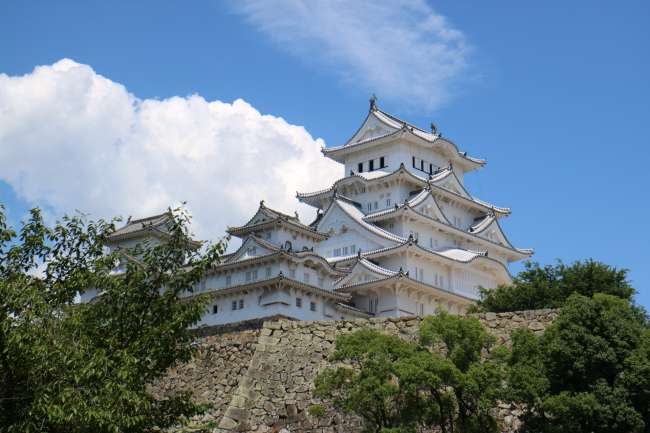
Swiviko swa maendzo Japani
